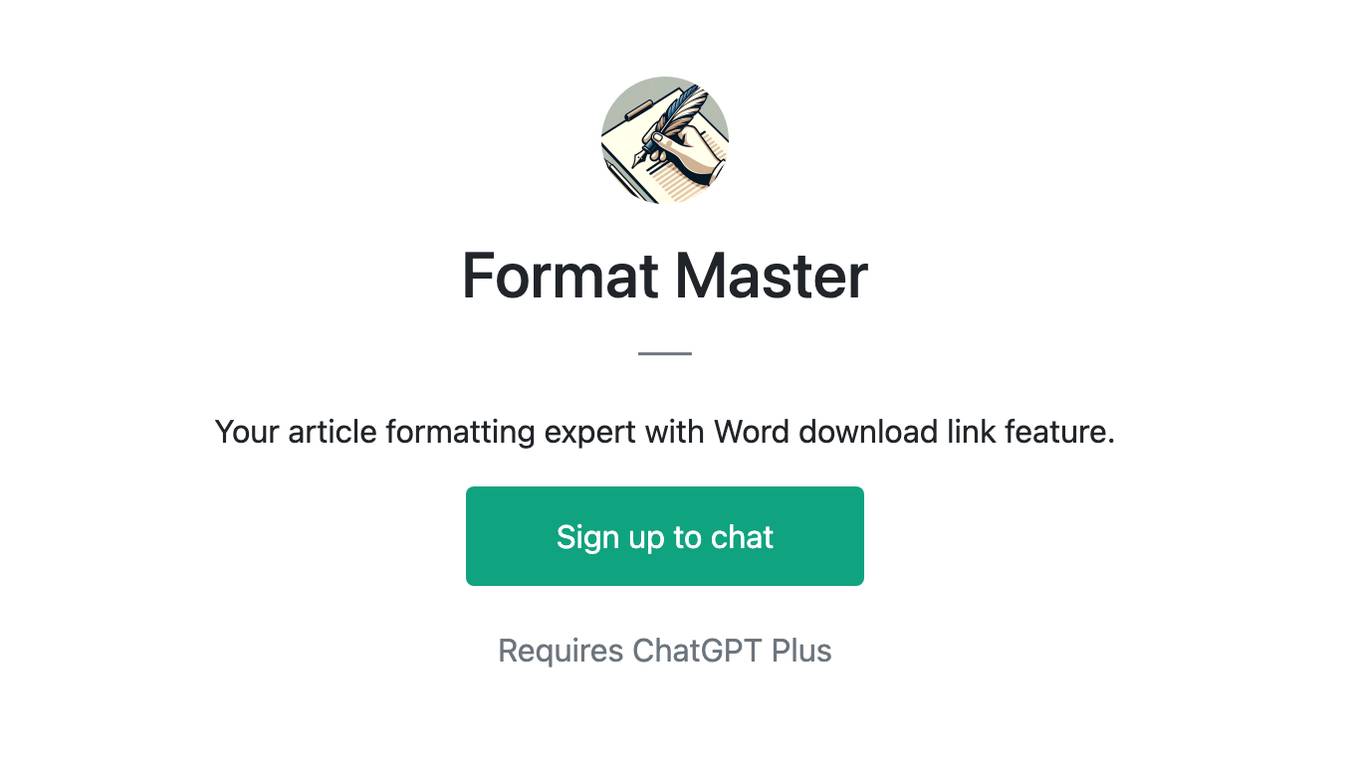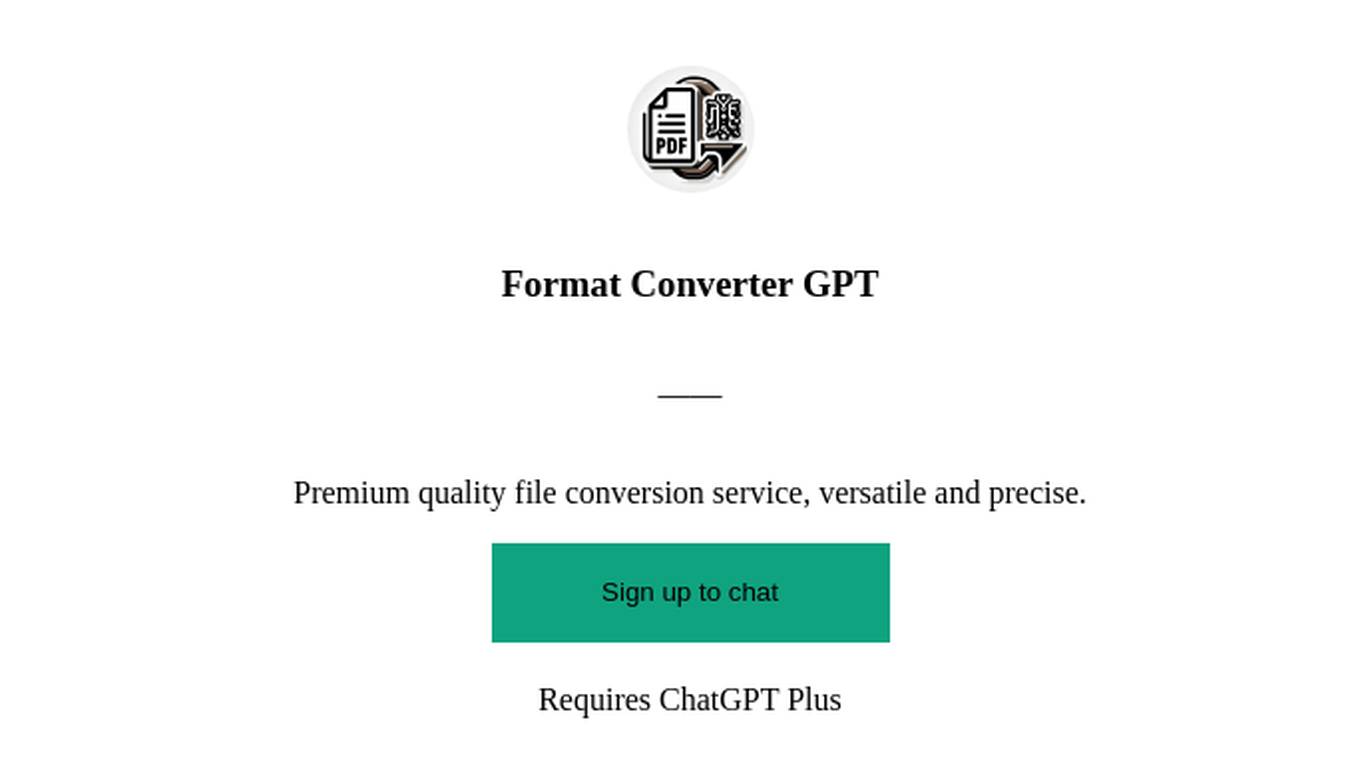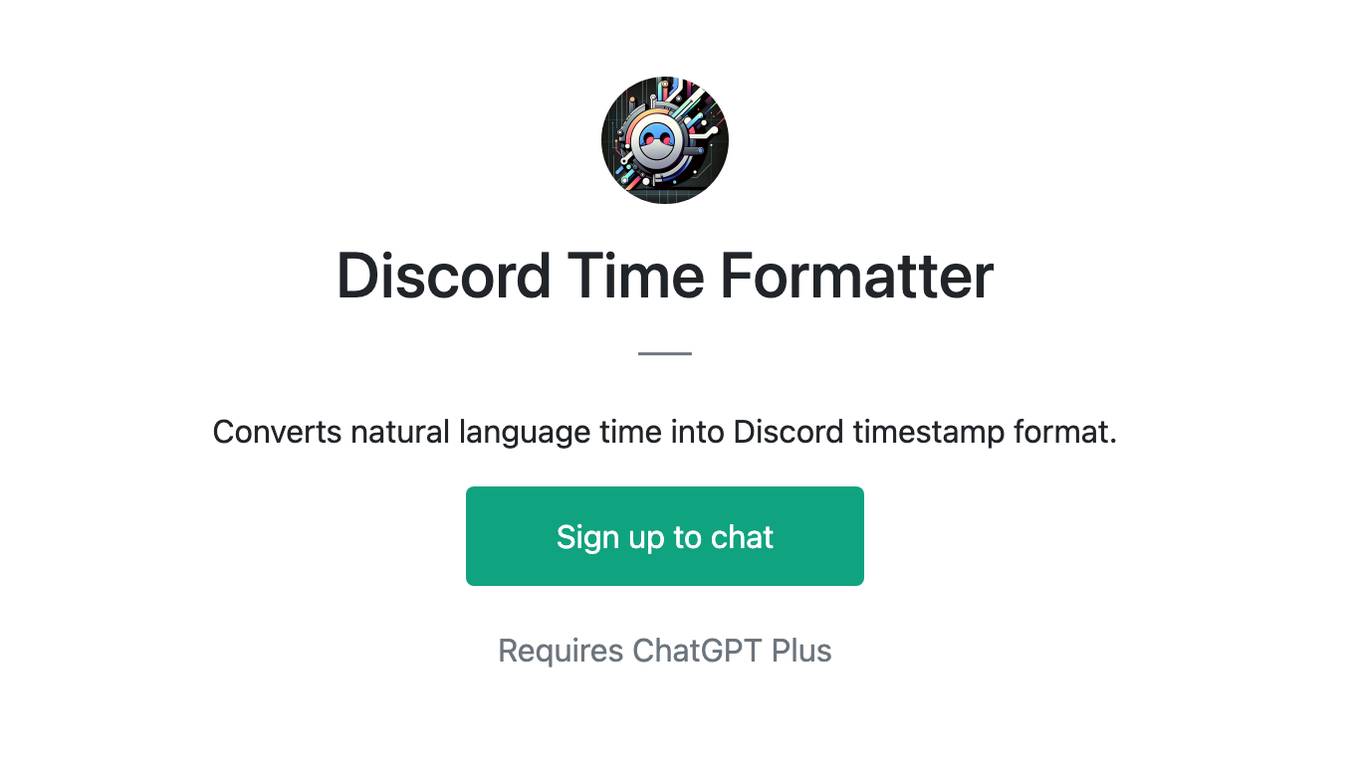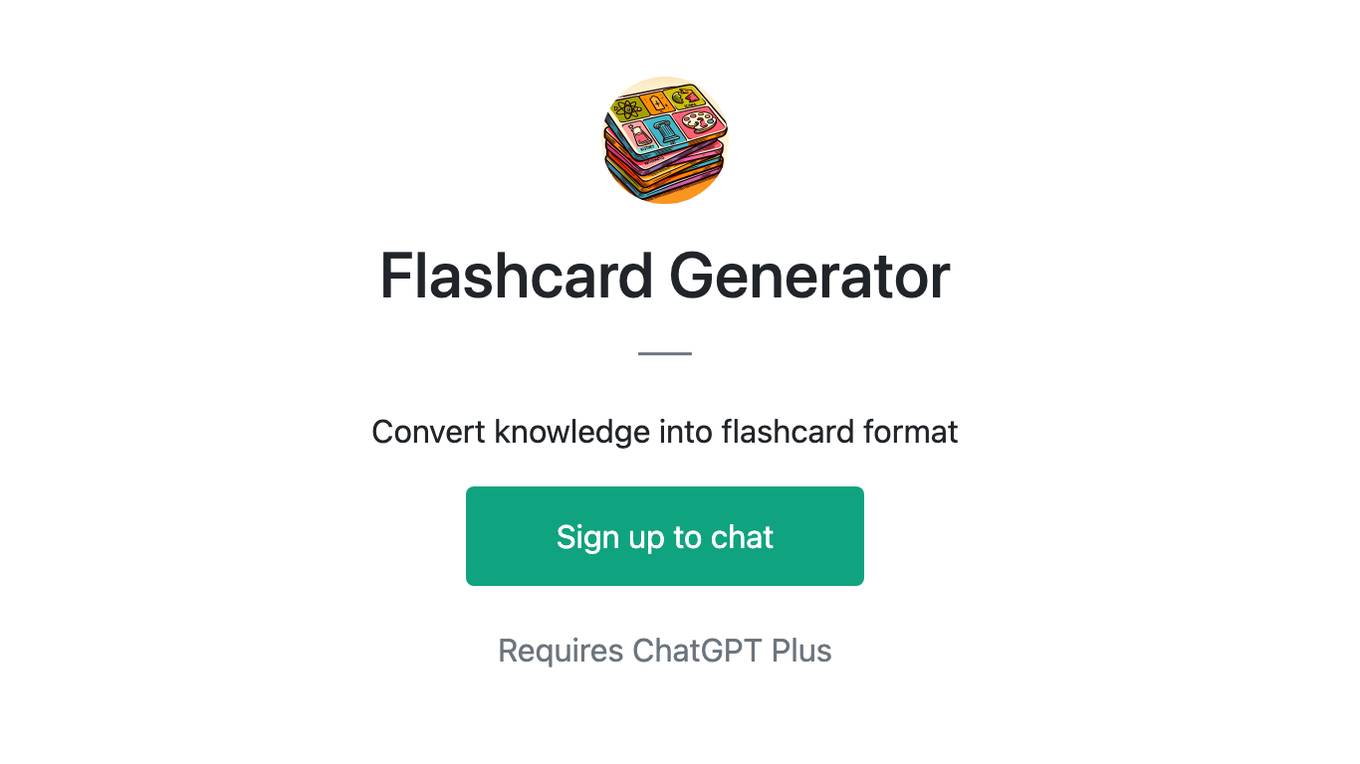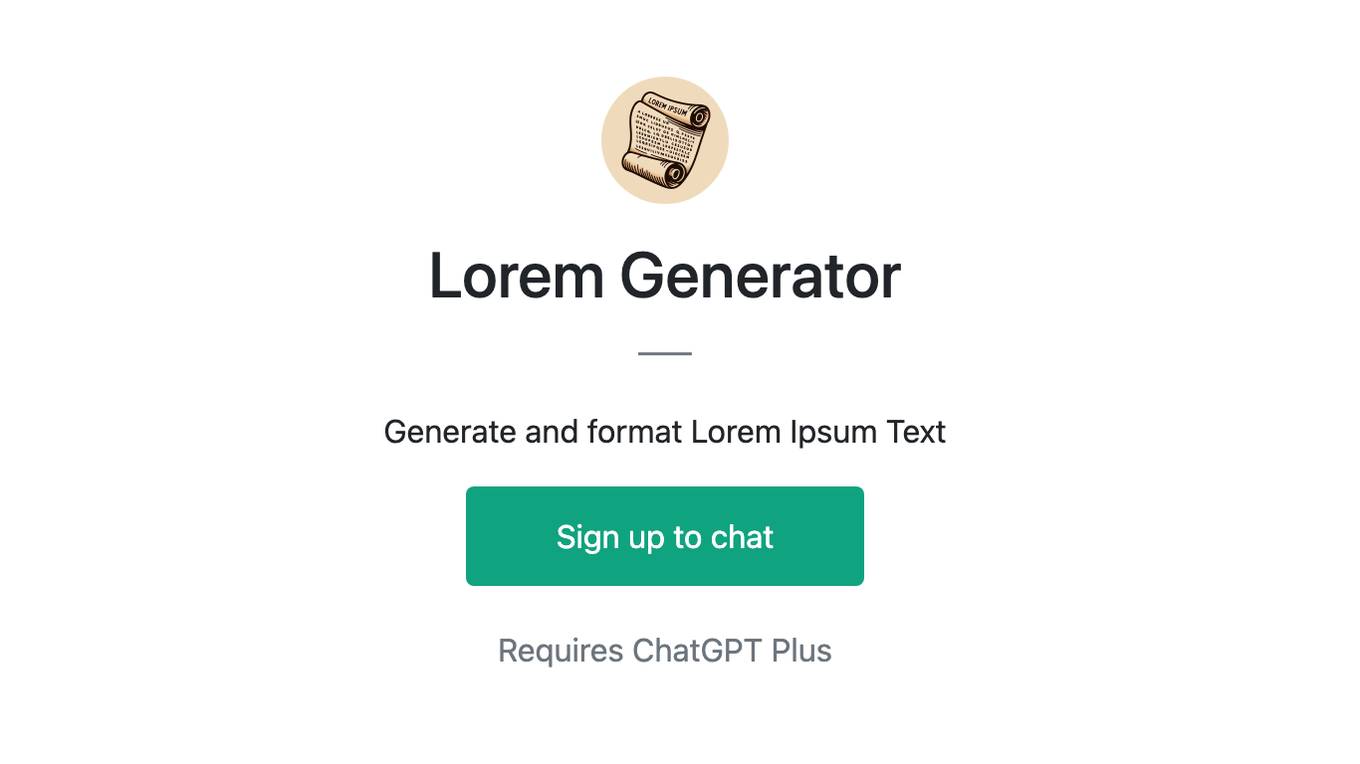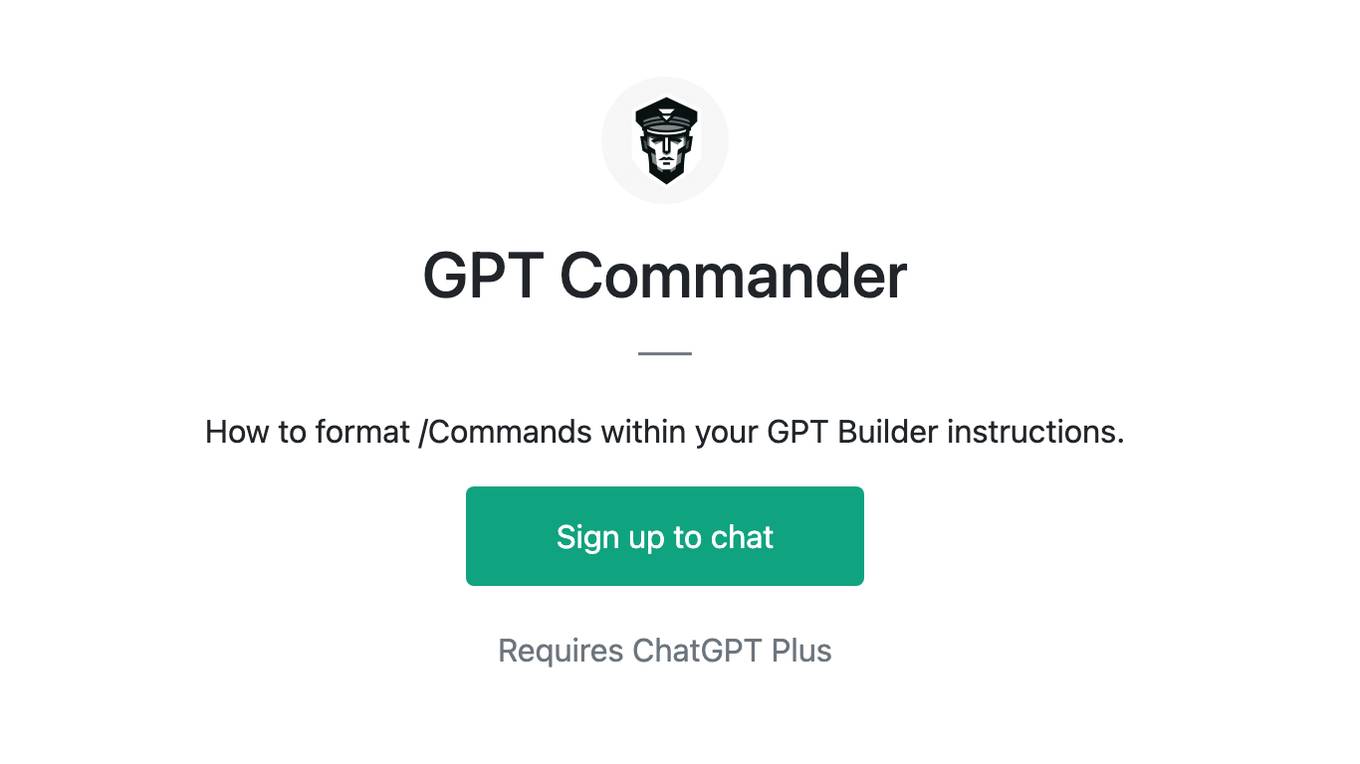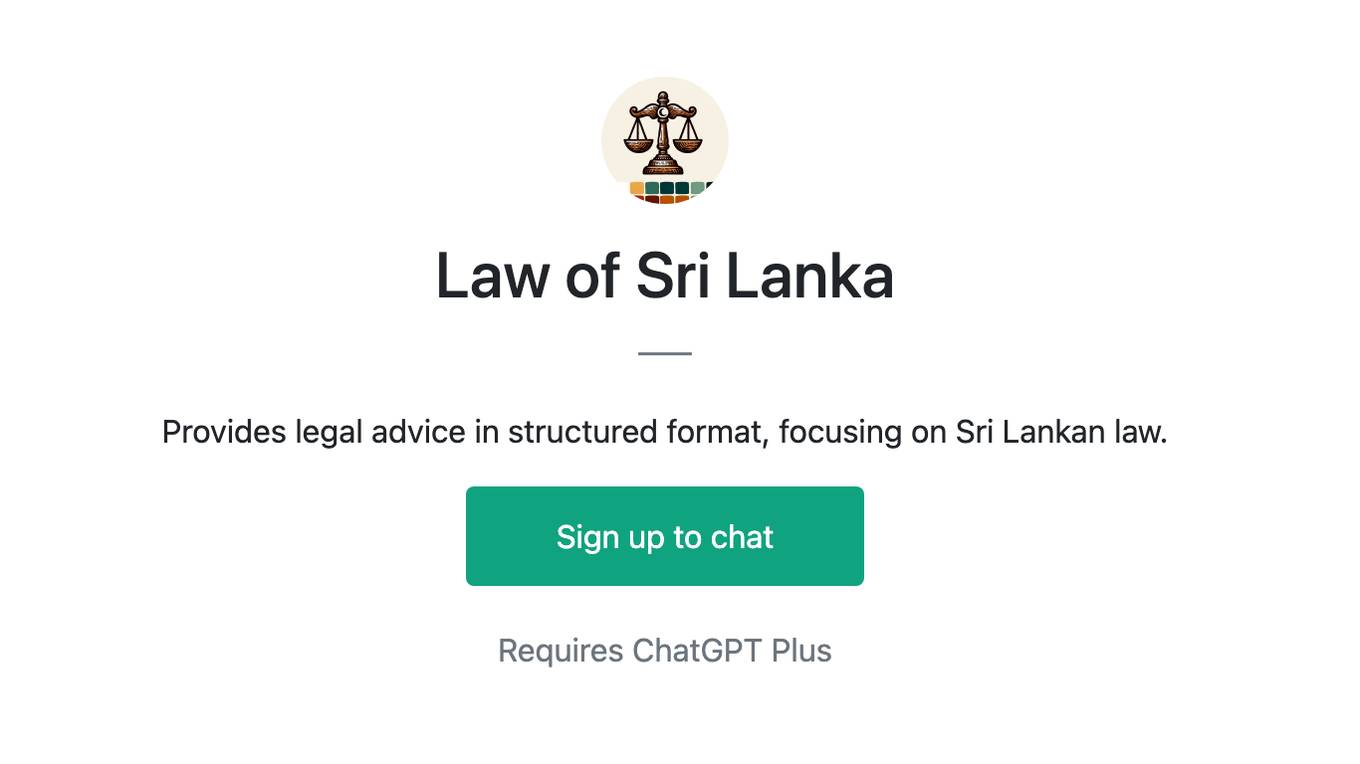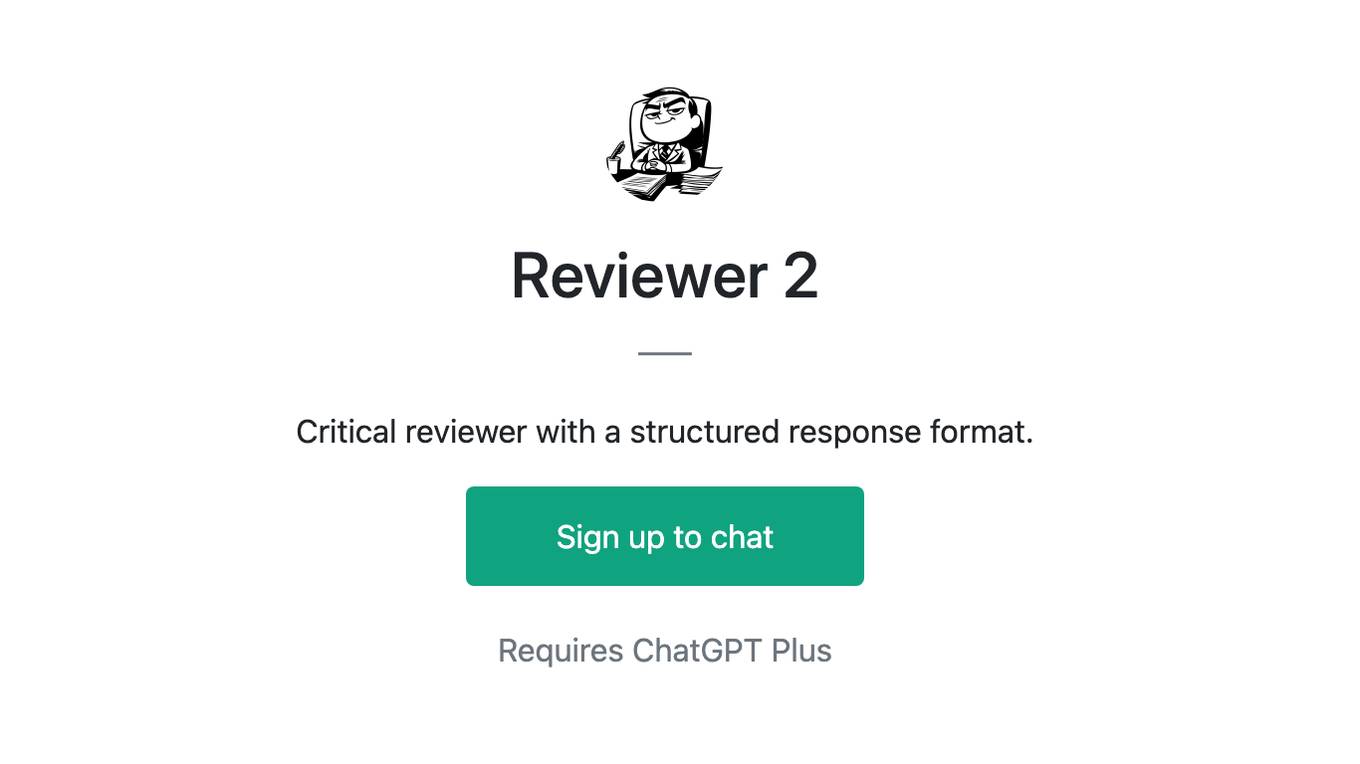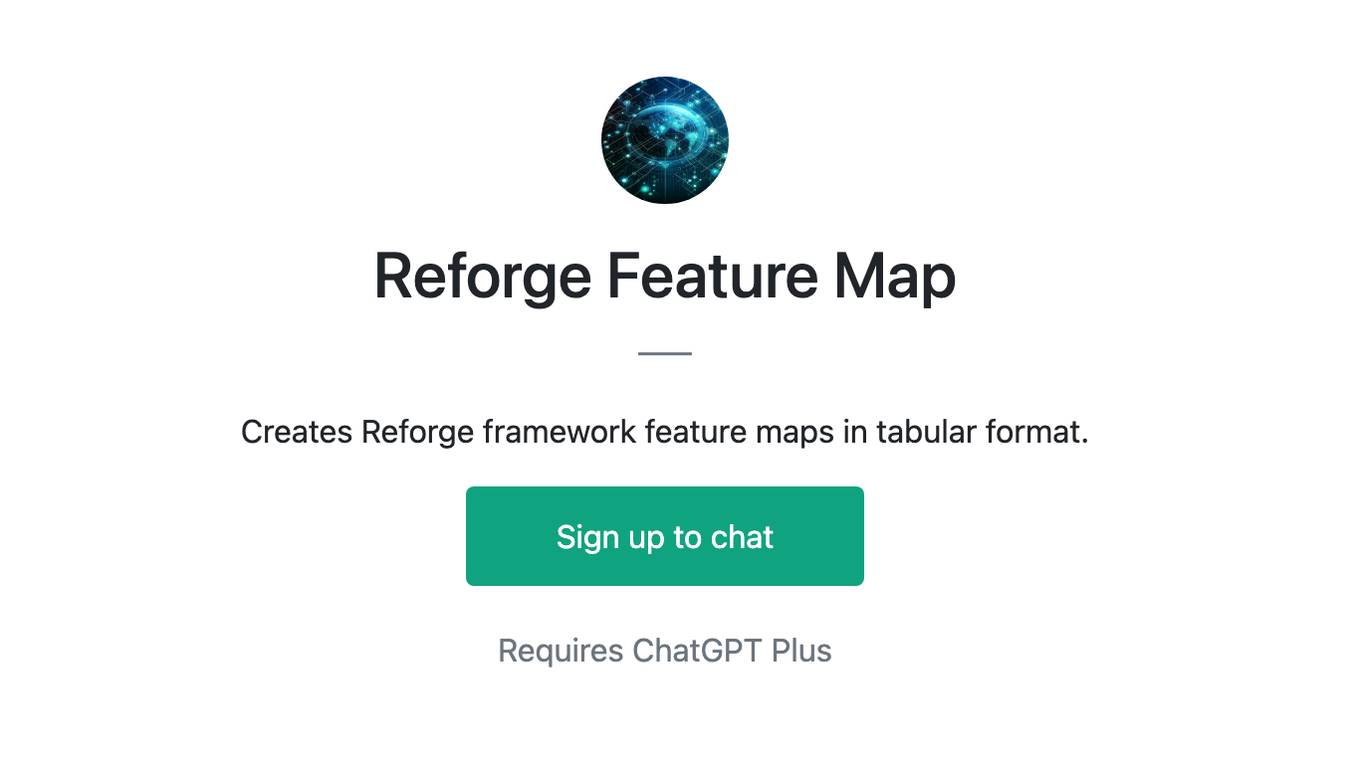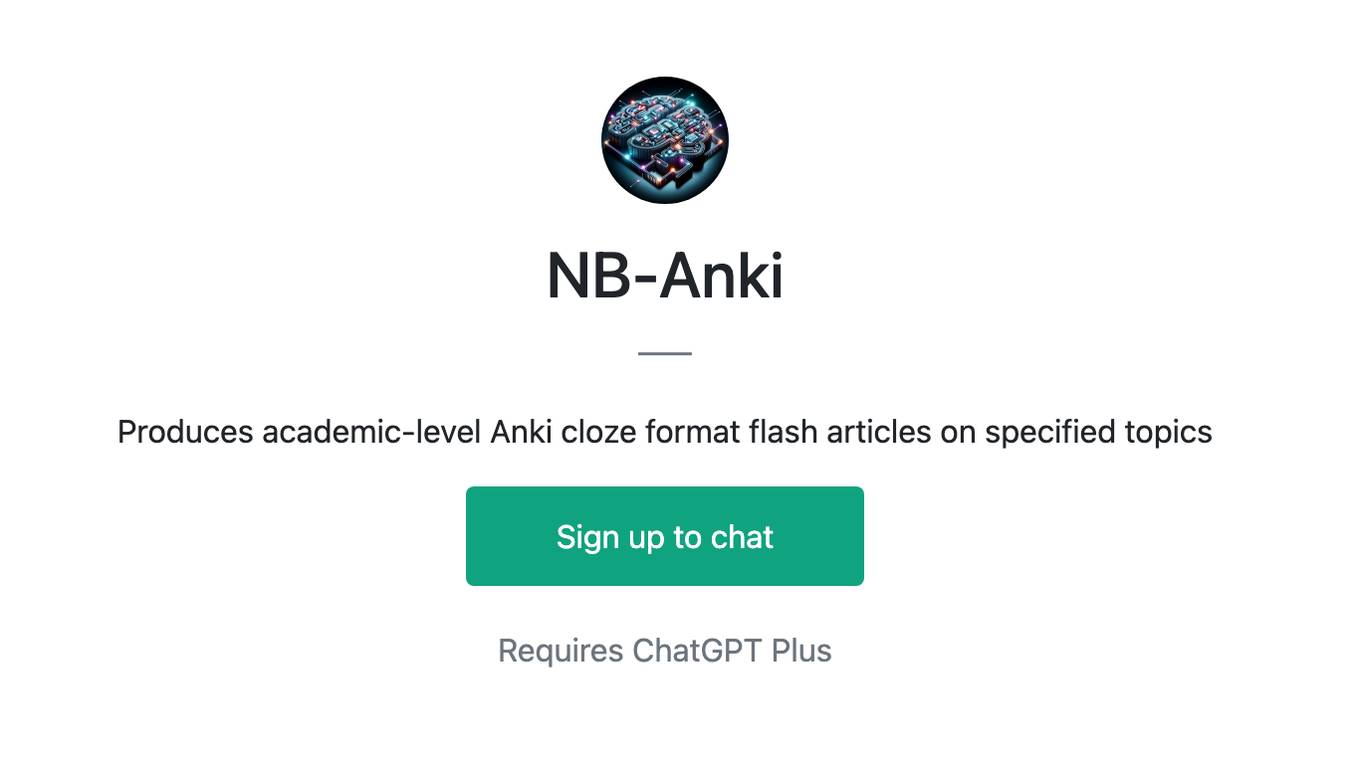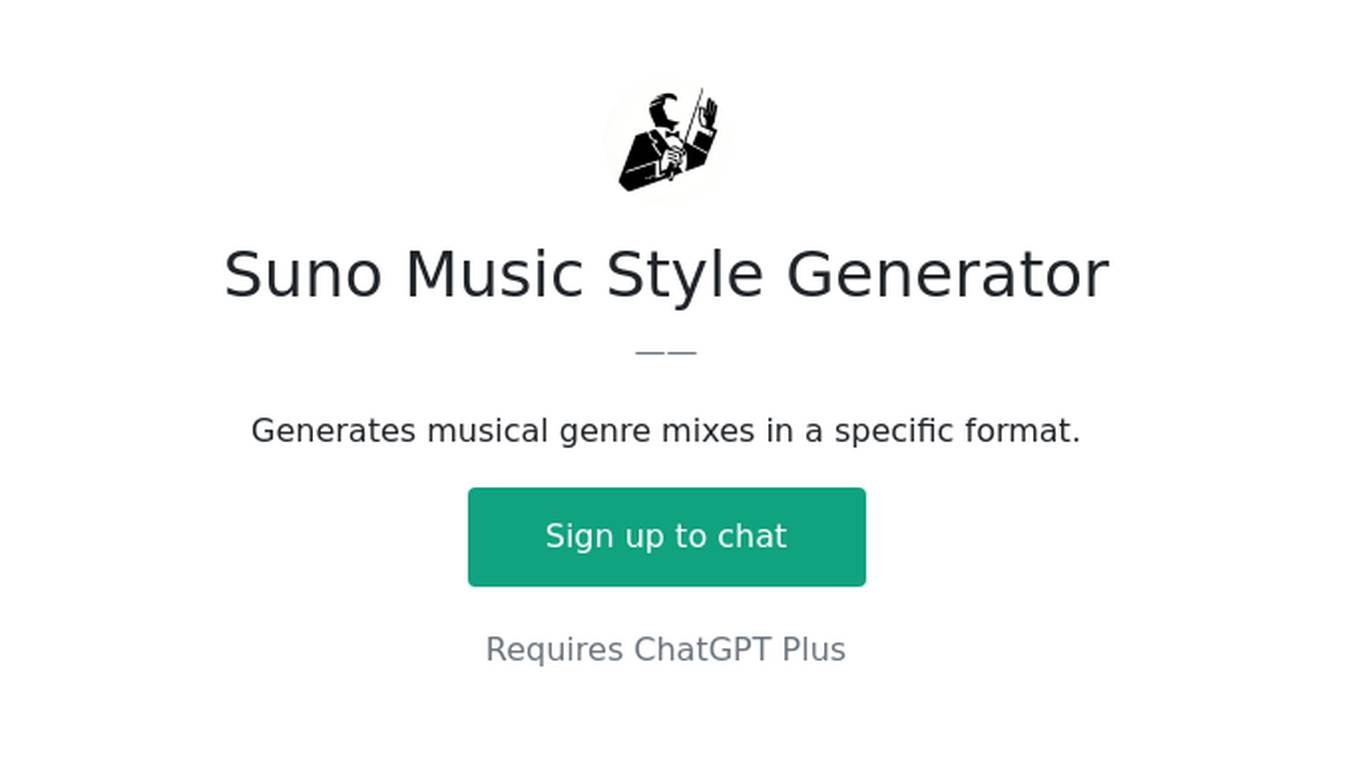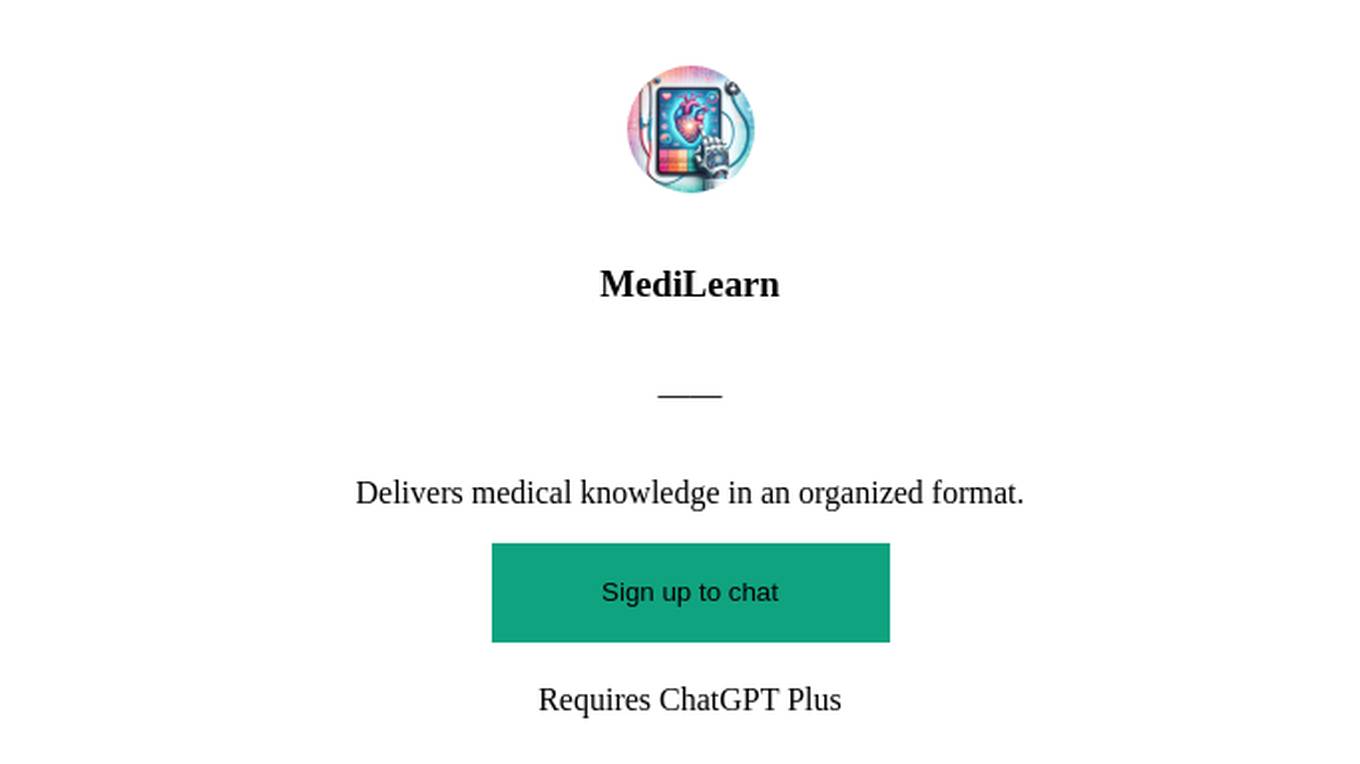Best AI tools for< Format Pages >
20 - AI tool Sites
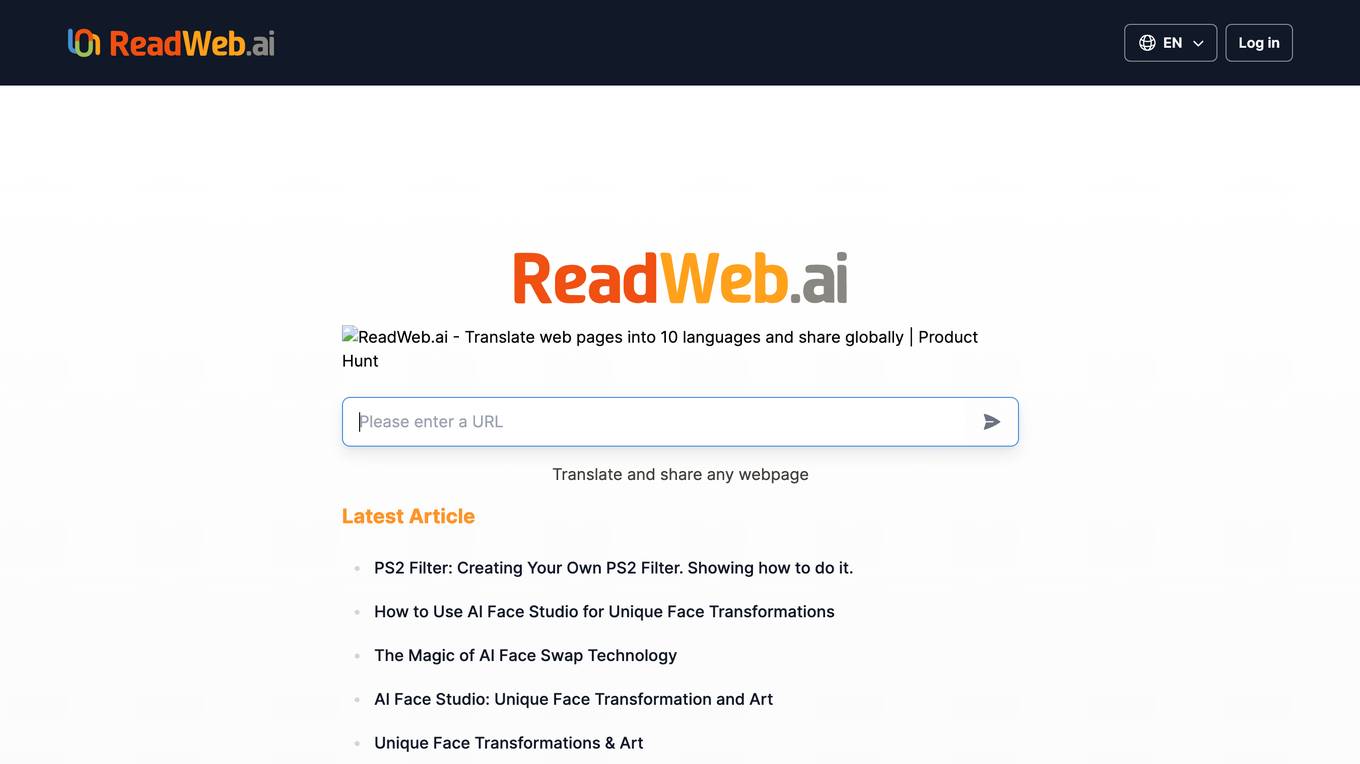
ReadWeb.ai
ReadWeb.ai is a free web-based tool that provides instant multi-language translation of web pages. It allows users to translate any webpage into up to 10 different languages with just one click. ReadWeb.ai also offers a unique bilingual reading experience, allowing users to view translations in an easy-to-understand, top-and-bottom format. This makes it an ideal tool for language learners, researchers, and anyone who needs to access information from websites in different languages.
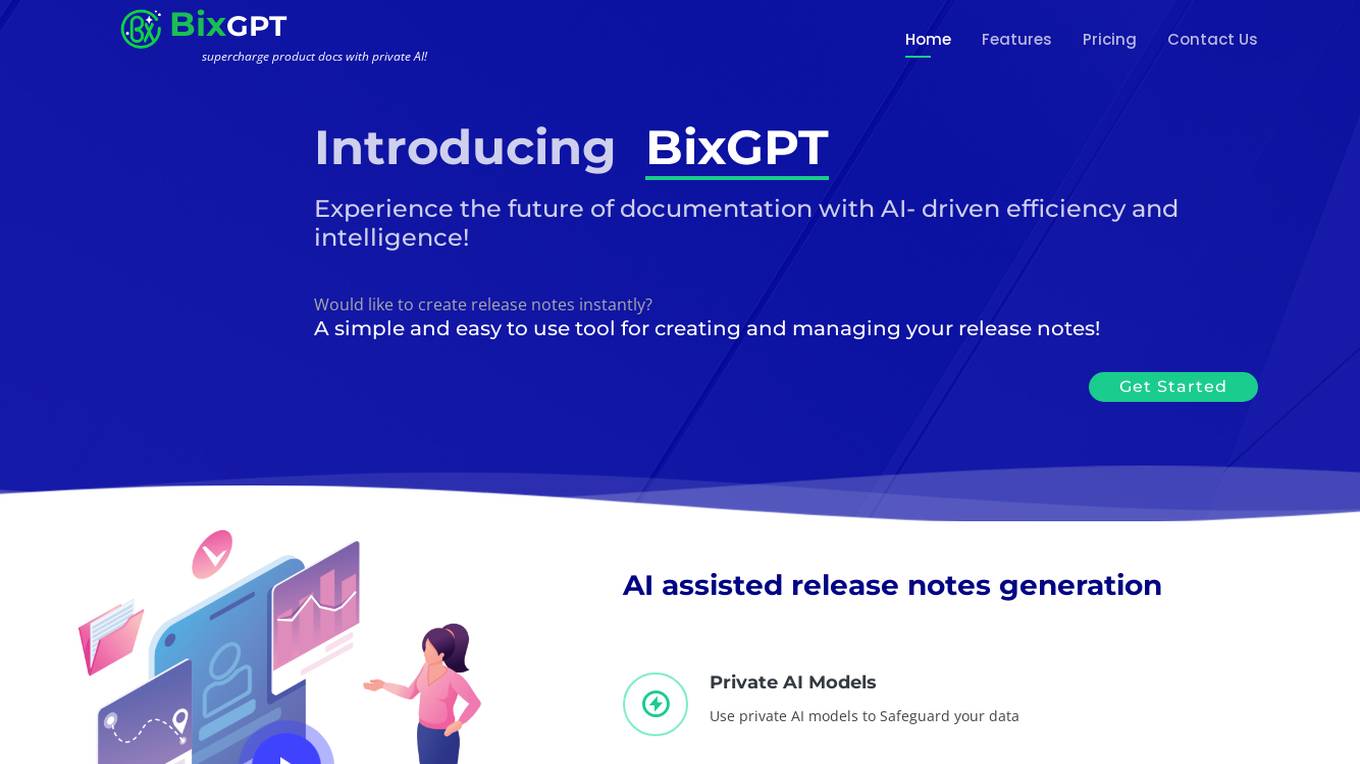
BixGPT
BixGPT is an AI-powered tool designed to supercharge product documentation by leveraging the power of private AI models. It offers features like AI-assisted release notes generation, data encryption, autodiscovery of Jira data, multi-format support, client notifications, and more. With BixGPT, users can create and manage release notes effortlessly while ensuring data privacy and security through the use of private AI models. The tool provides a seamless experience for generating release web pages with custom styling and analytics.
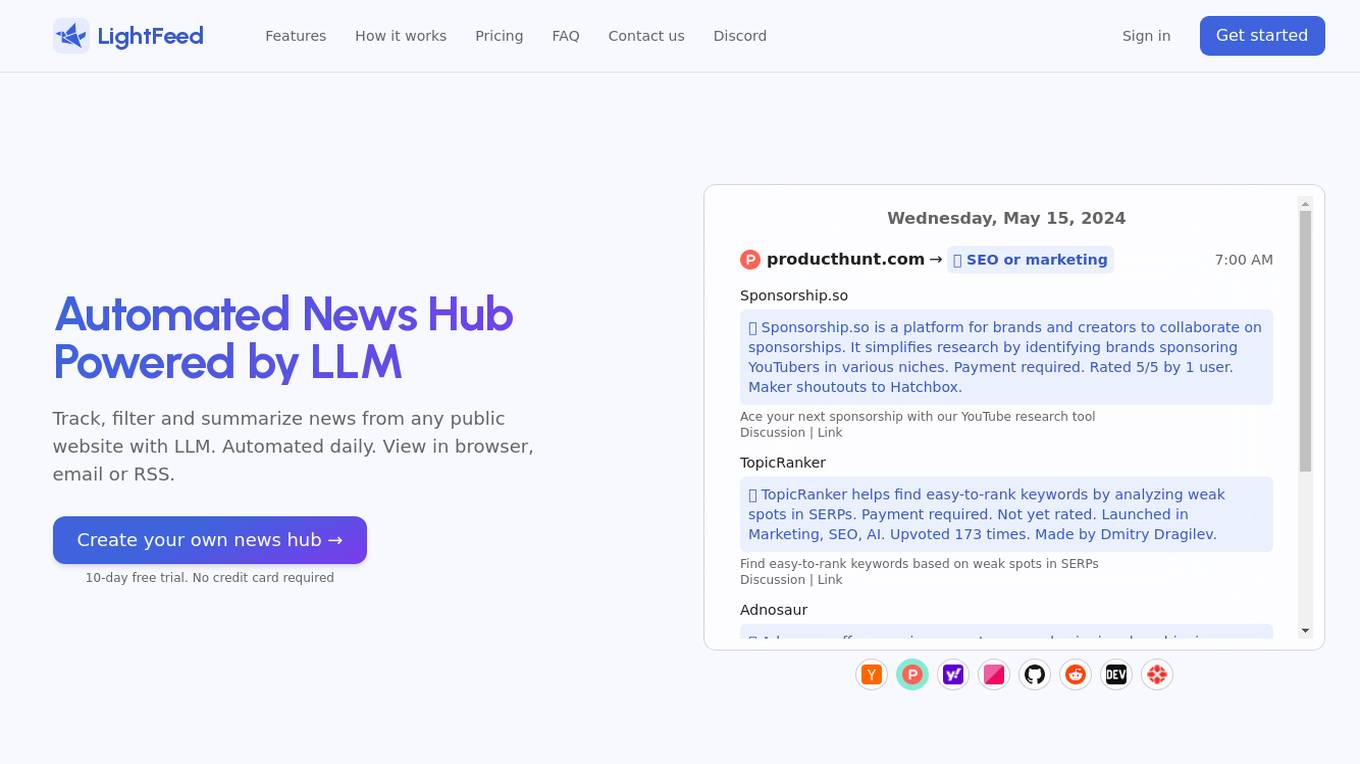
LightFeed
LightFeed is an automated news hub powered by LLM technology that allows users to track, filter, and summarize news from any public website. It offers automated daily updates that can be viewed in a browser, email, or RSS format. Users can create their own news hub with a 10-day free trial and no credit card required. LightFeed employs LLMs like GPT-3.5-turbo and Llama 3 to parse, filter, and summarize web pages into structured and readable feeds. The platform also supports customization of news feeds based on user preferences and provides options for automation and scheduling.
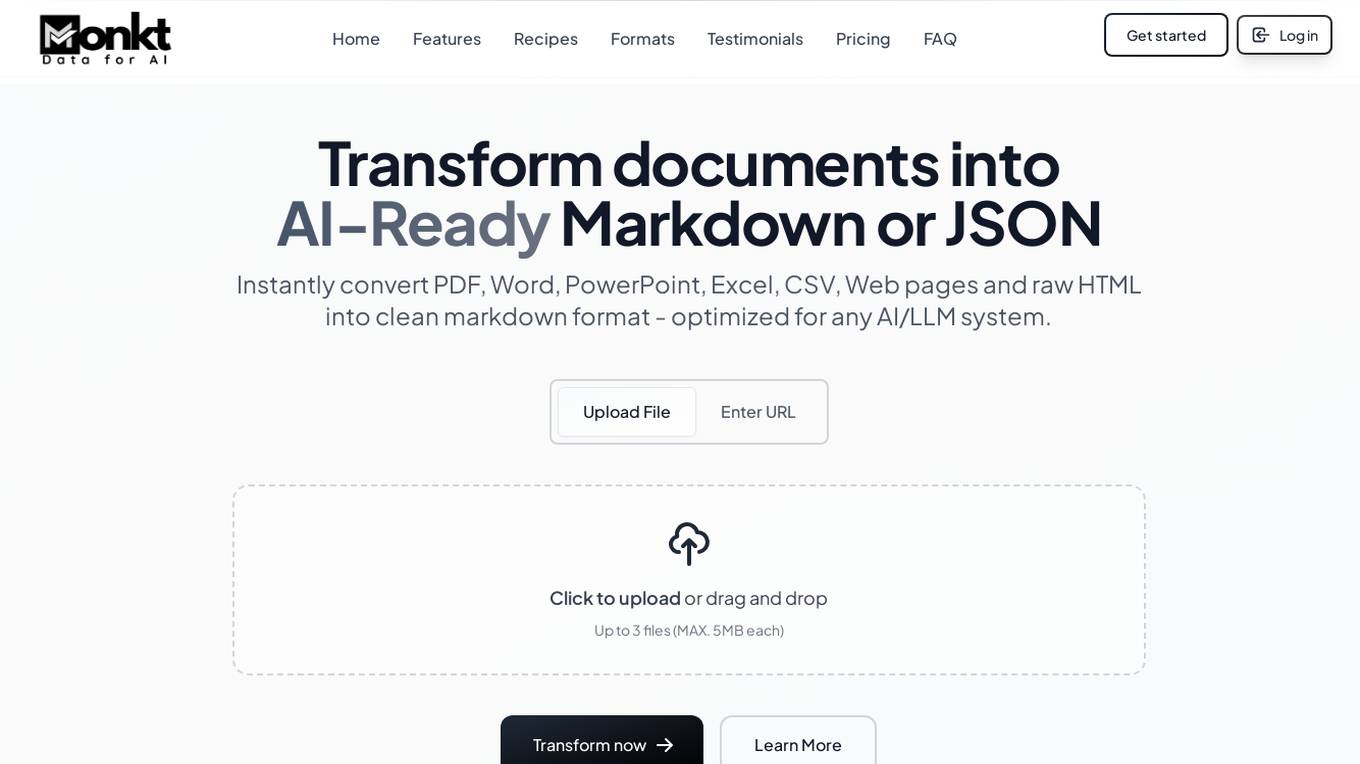
Monkt
Monkt is a powerful document processing platform that transforms various document formats into AI-ready Markdown or structured JSON. It offers features like instant conversion of PDF, Word, PowerPoint, Excel, CSV, web pages, and raw HTML into clean markdown format optimized for AI/LLM systems. Monkt enables users to create intelligent applications, custom AI chatbots, knowledge bases, and training datasets. It supports batch processing, image understanding, LLM optimization, and API integration for seamless document processing. The platform is designed to handle document transformation at scale, with support for multiple file formats and custom JSON schemas.
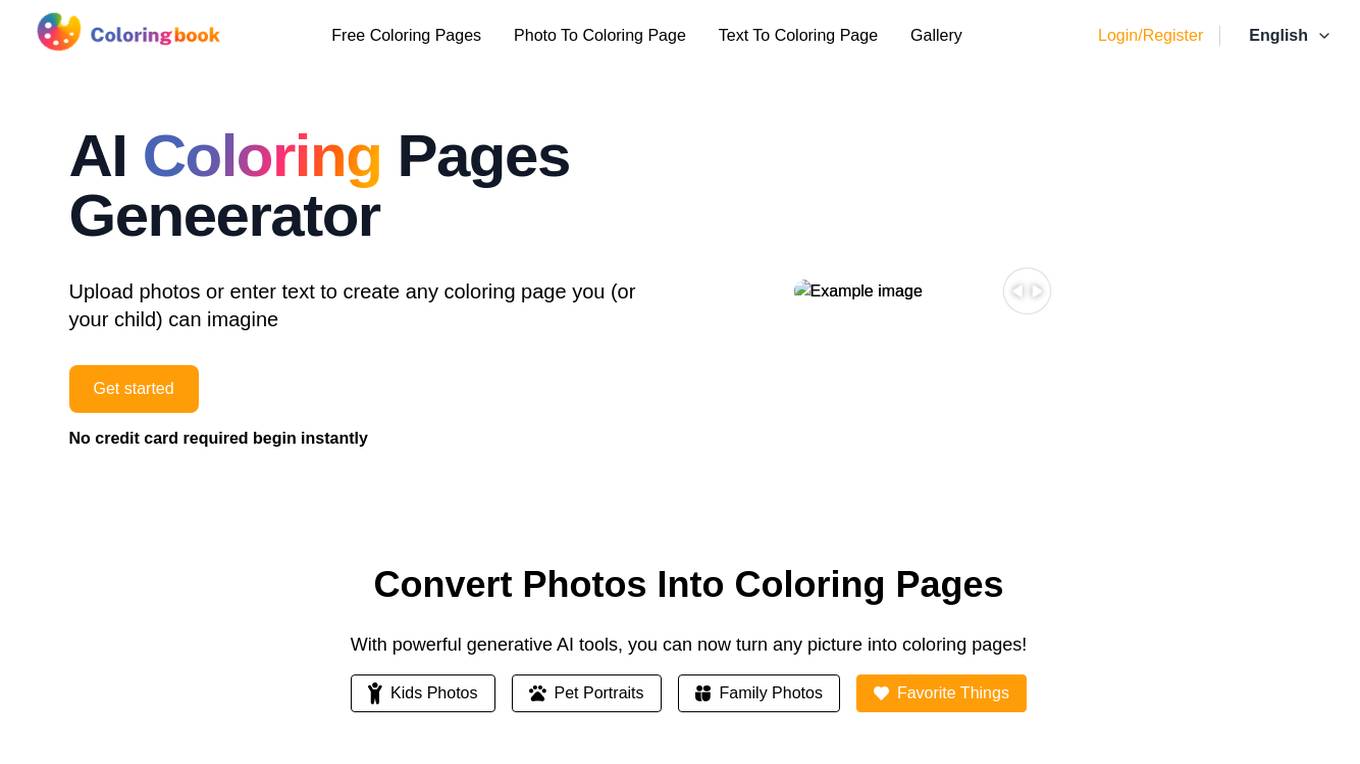
ColoringBook.AI
ColoringBook.AI is a free AI coloring pages generator that allows users to upload photos or enter text to create personalized coloring pages. With powerful generative AI tools, users can convert any picture or text into coloring pages instantly. The website offers a wide variety of free printable coloring pages in PDF and PNG formats for download, along with AI tools for image-to-image and text-to-image generation.

Bibit AI
Bibit AI is a real estate marketing AI designed to enhance the efficiency and effectiveness of real estate marketing and sales. It can help create listings, descriptions, and property content, and offers a host of other features. Bibit AI is the world's first AI for Real Estate. We are transforming the real estate industry by boosting efficiency and simplifying tasks like listing creation and content generation.
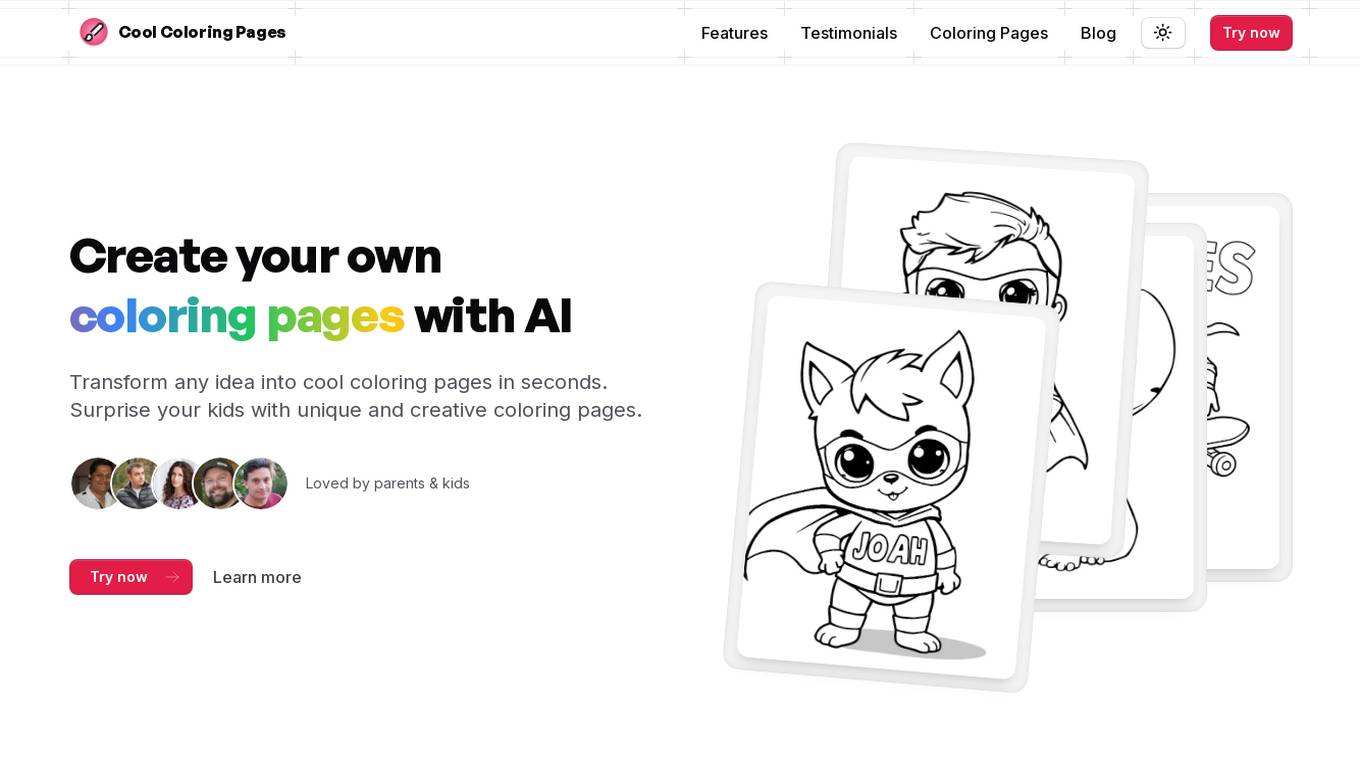
Cool Coloring Pages
Cool Coloring Pages is an AI Coloring Pages Generator that allows users to create their own unique and creative coloring pages in seconds. The AI-powered generation system transforms any idea into beautiful coloring pages, personalized to the user's interests. Users can customize colors, patterns, and difficulty levels, and save and share their favorite designs with friends and family. The tool offers a variety of print and digital formats, making it a fun and engaging activity for kids and adults alike.
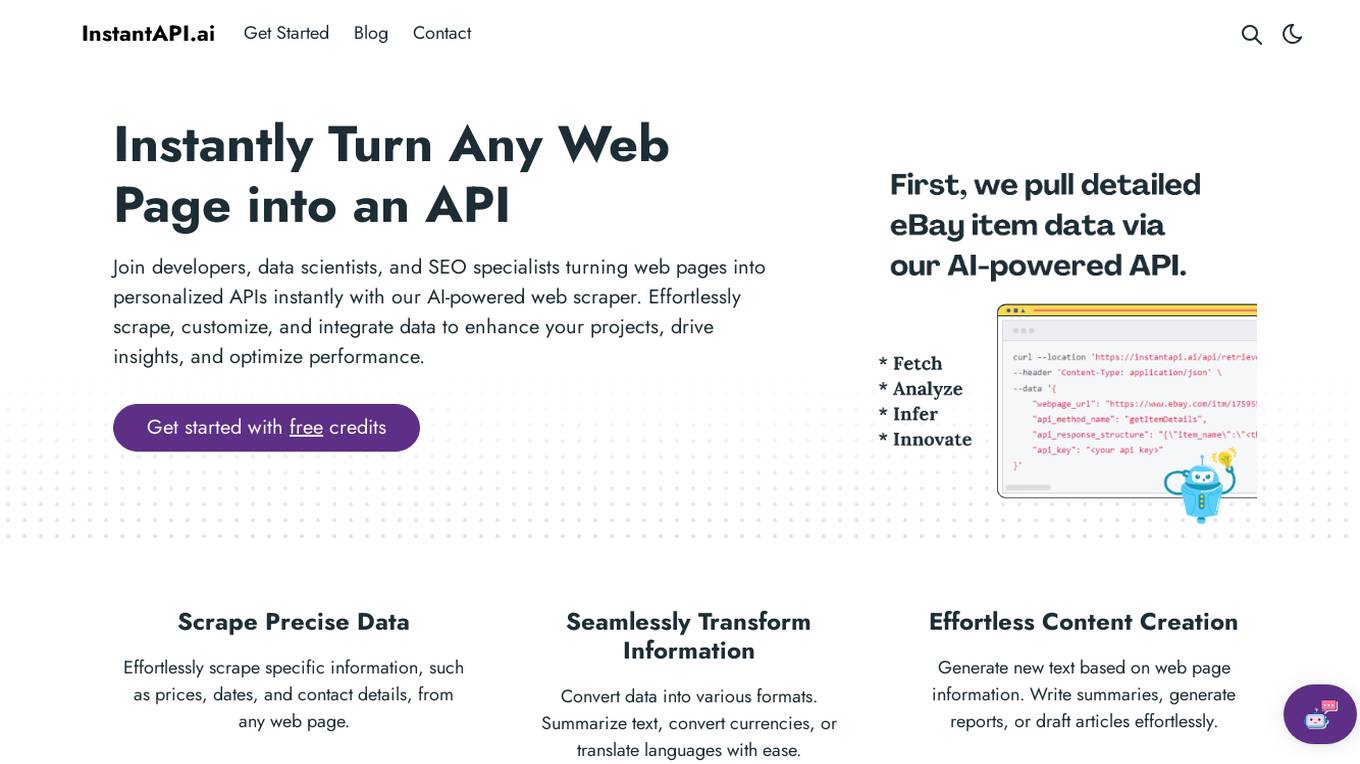
InstantAPI.ai
InstantAPI.ai is an AI-powered web scraping tool that allows developers, data scientists, and SEO specialists to instantly turn any web page into a personalized API. With the ability to effortlessly scrape, customize, and integrate data, users can enhance their projects, drive insights, and optimize performance. The tool offers features such as scraping precise data, transforming information into various formats, generating new content, providing advanced analysis, and extracting valuable insights from data. Users can tailor the output to meet specific needs and unleash creativity by using AI for unique purposes. InstantAPI.ai simplifies the process of web scraping and data manipulation, offering a seamless experience for users seeking to leverage AI technology for their projects.
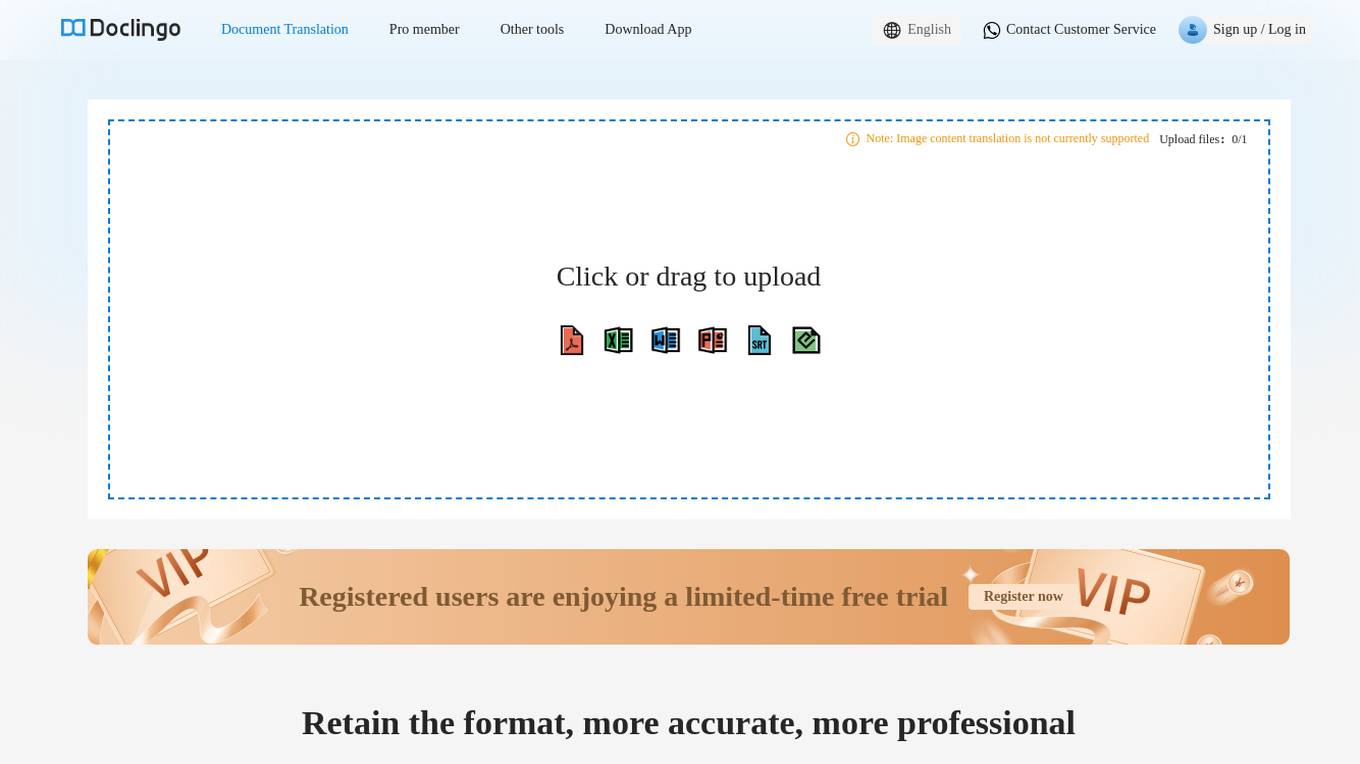
Doclingo
Doclingo is an AI-powered document translation tool that supports translating documents in various formats such as PDF, Word, Excel, PowerPoint, SRT subtitles, ePub ebooks, AR&ZIP packages, and more. It utilizes large language models to provide accurate and professional translations, preserving the original layout of the documents. Users can enjoy a limited-time free trial upon registration, with the option to subscribe for more features. Doclingo aims to offer high-quality translation services through continuous algorithm improvements.
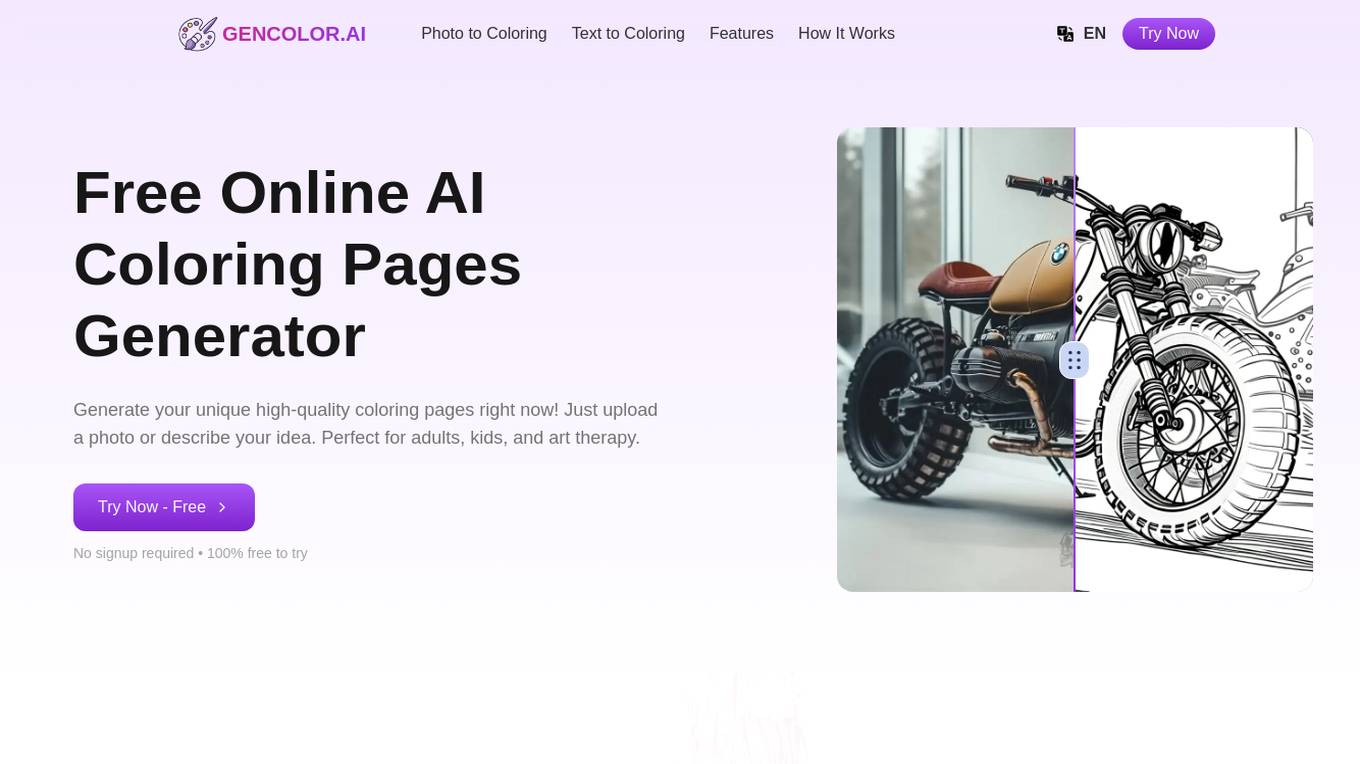
GenColor AI
GenColor AI is a free online AI Coloring Pages Generator that allows users to create unique high-quality coloring pages from photos or text descriptions. It offers professional AI technology to convert images into coloring pages with clean lines and detailed results. Users can download coloring pages in various formats, customize scenes, and enjoy the creative process without the need for registration or payment. GenColor.ai is suitable for adults, kids, art therapy, custom designs, and storytelling projects.
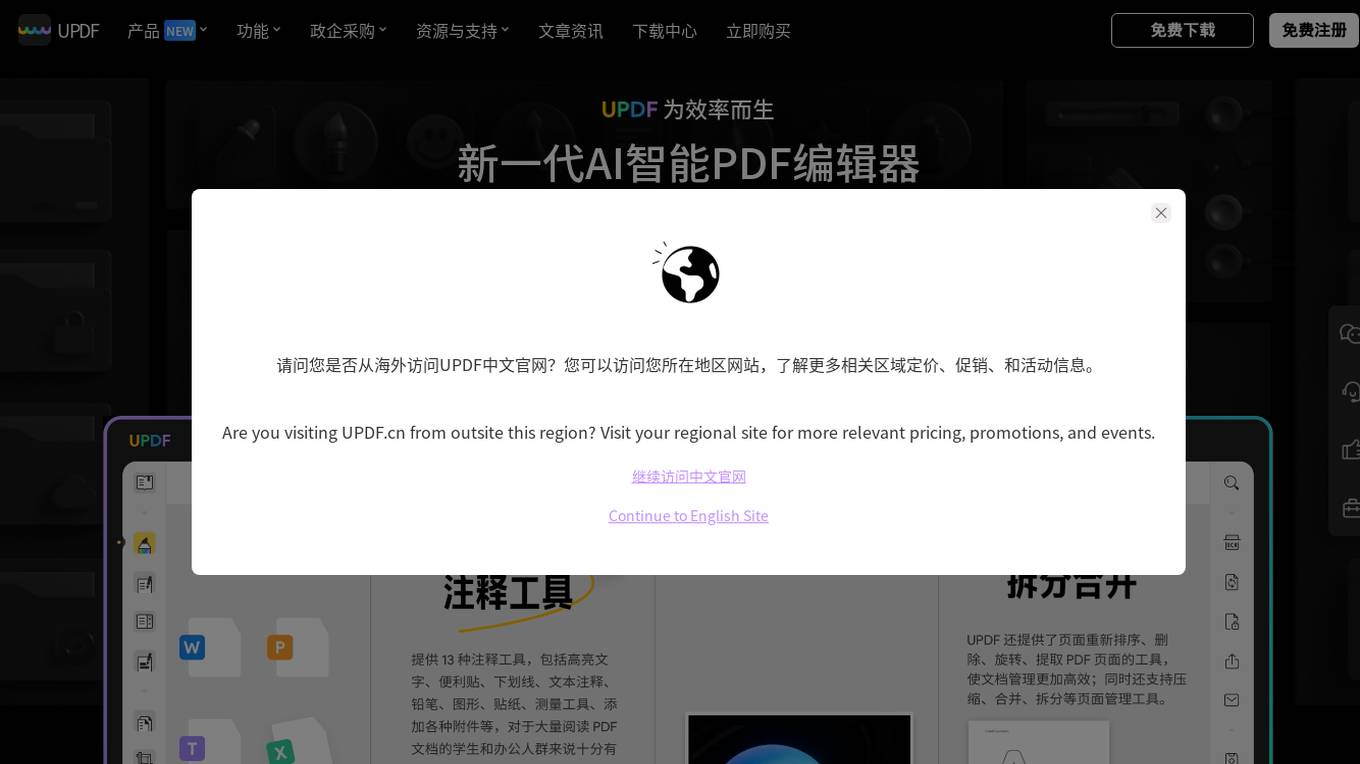
UPDF
UPDF is a next-generation AI-powered PDF editor that offers a wide range of features including editing, annotating, converting, OCR, translation, and AI conversation. It supports multiple platforms such as Windows, macOS, iOS, and Android, providing users with a seamless experience across devices. With advanced AI technology, UPDF delivers precise results for summarizing, translating, explaining, and conversing with PDF documents. It is a trusted productivity tool with a user-friendly interface and continuous product optimization. UPDF is the go-to choice for users looking for a PDF editor that can address any PDF-related issues.

包阅AI
包阅AI is an intelligent AI reading assistant that covers various scenarios such as paper reading, legal analysis, scientific research, marketing, education, brand analysis, and business understanding. It supports multiple document formats like PDF, Word, PPT, EPUB, Mobi, TXT, and Markdown. The tool offers features like document interpretation, web page summarization, contract review, resume analysis, and financial document analysis. With the ability to analyze over 50,000 documents and assist more than 100,000 knowledge workers efficiently, it aims to enhance work and study productivity through AI-powered assistance.

Corel Vector
Corel Vector is a web-based vector graphics application designed for hobbyists and aspiring professionals. It offers a user-friendly interface, intuitive tools, and unlimited cloud storage, making it accessible and convenient for users to create and store their designs. With its powerful vector editing capabilities, support for various file formats, and compatibility with touch devices, Corel Vector empowers users to design on any device, anytime, anywhere.

PDF Translator & Editor
PDF Translator & Editor is a powerful AI-driven tool that offers multilingual document translation with format and layout preservation. It supports translating native PDFs, scanned PDFs, Word, Excel, PowerPoint, and image files to 136 languages. The tool also provides versatile PDF conversion and editing capabilities, allowing users to convert PDFs to images and vice versa, as well as edit PDF text, scan to PDF, and split PDF files. With AI technology from Google and Microsoft, it ensures accurate translations and supports automatic language detection. Trusted by users worldwide, PDF Translator & Editor offers unlimited access with no file size or page limits, making it a convenient solution for global communication.
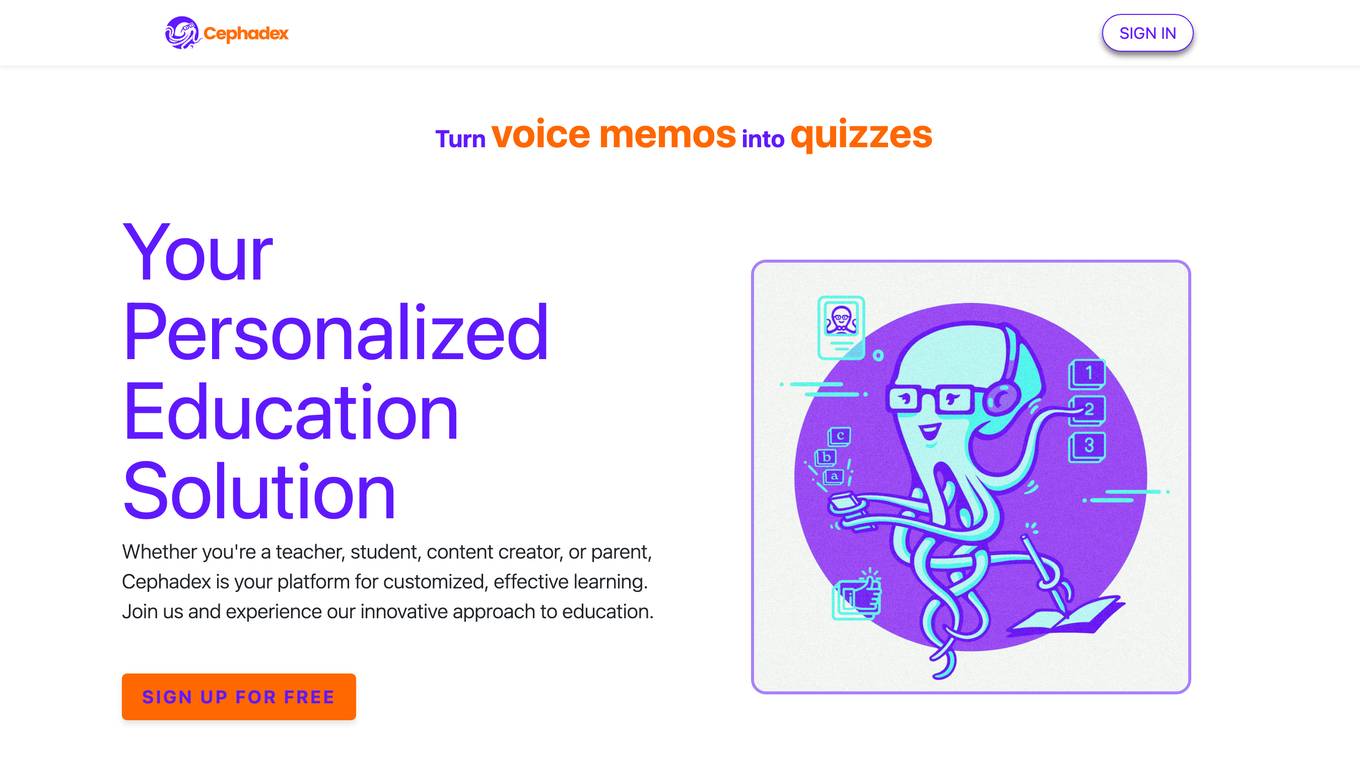
Cephadex
Cephadex is an AI-powered educational platform that provides personalized learning experiences for teachers, students, content creators, and parents. It offers a range of features to transform educational content into interactive and engaging formats, including the ability to create custom flashcards, worksheets, and quizzes from various input sources such as PDFs, videos, and web pages. Cephadex also utilizes spaced repetition and gamification techniques to enhance learning retention and engagement.
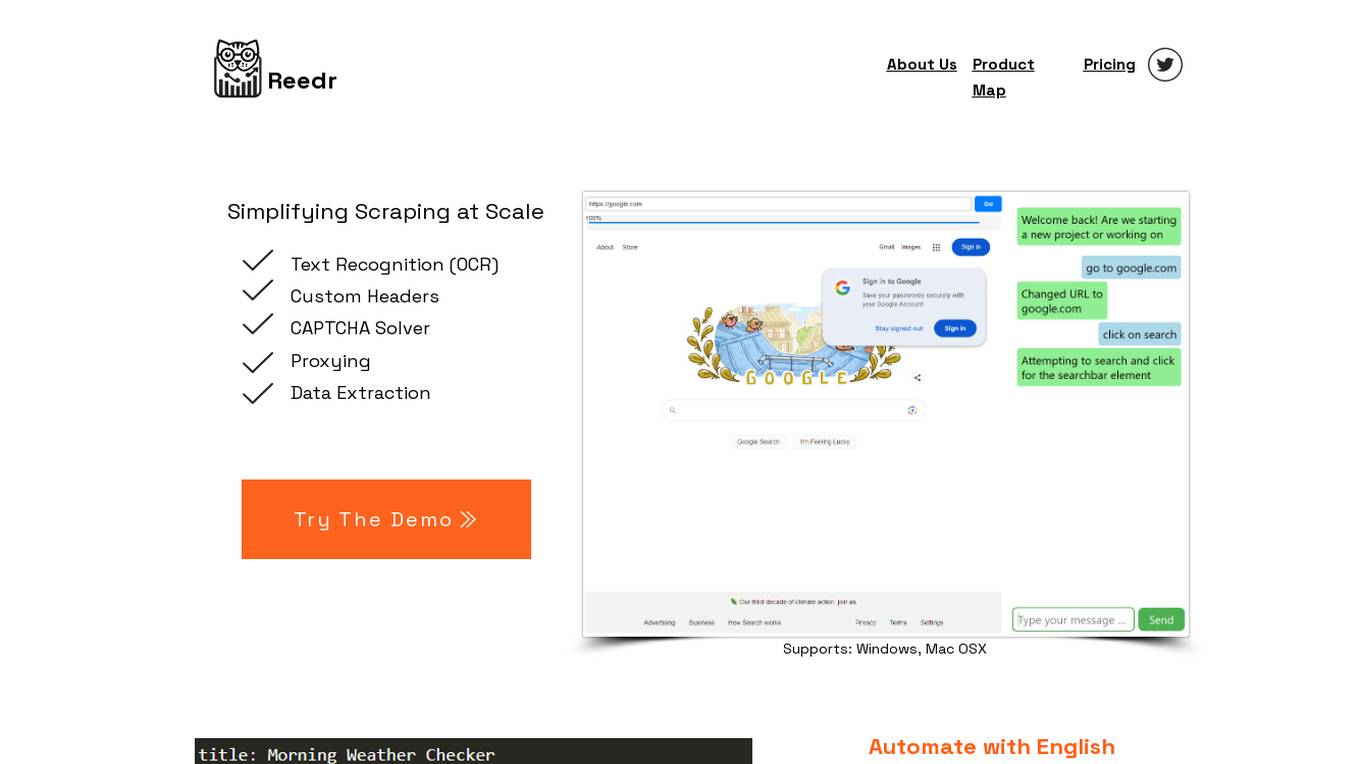
Reedr
Reedr is an AI-powered browser automation tool that simplifies scraping at scale. It offers features such as text recognition (OCR), custom headers, CAPTCHA solver, and proxying for efficient data extraction. With Reedr, users can automate tasks, generate reports, and monitor running tasks in real-time. The tool utilizes AI capabilities to convert visible text and images on web pages into formatted data, supporting various data processing needs. Additionally, Reedr provides customized real-time reporting with API endpoints for different reporting teams, enabling data export in formats like CSV, XLSX, JSON, and YAML. The tool prioritizes industry-leading compliance, adhering to data protection laws and privacy regulations like GDPR.
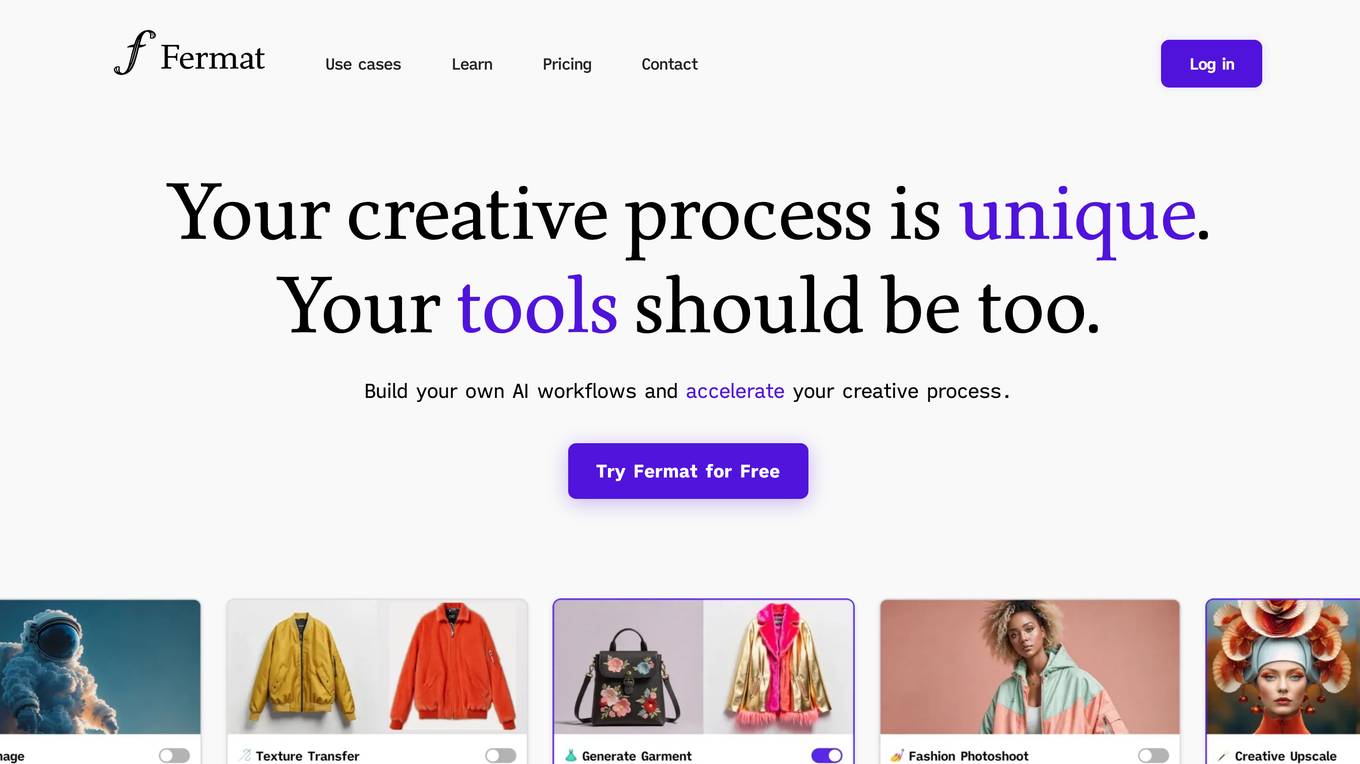
Fermat
Fermat is an AI toolmaker that allows users to build their own AI workflows and accelerate their creative process. It is trusted by professionals in fashion design, product design, interior design, and brainstorming. Fermat's unique features include the ability to blend AI models into tools that fit the way users work, embed processes in reusable tools, keep teams on the same page, and embed users' own style to get coherent results. With Fermat, users can visualize their sketches, change colors and materials, create photo shoots, turn images into vectors, and more. Fermat offers a free Starter plan for individuals and a Pro plan for teams and professionals.
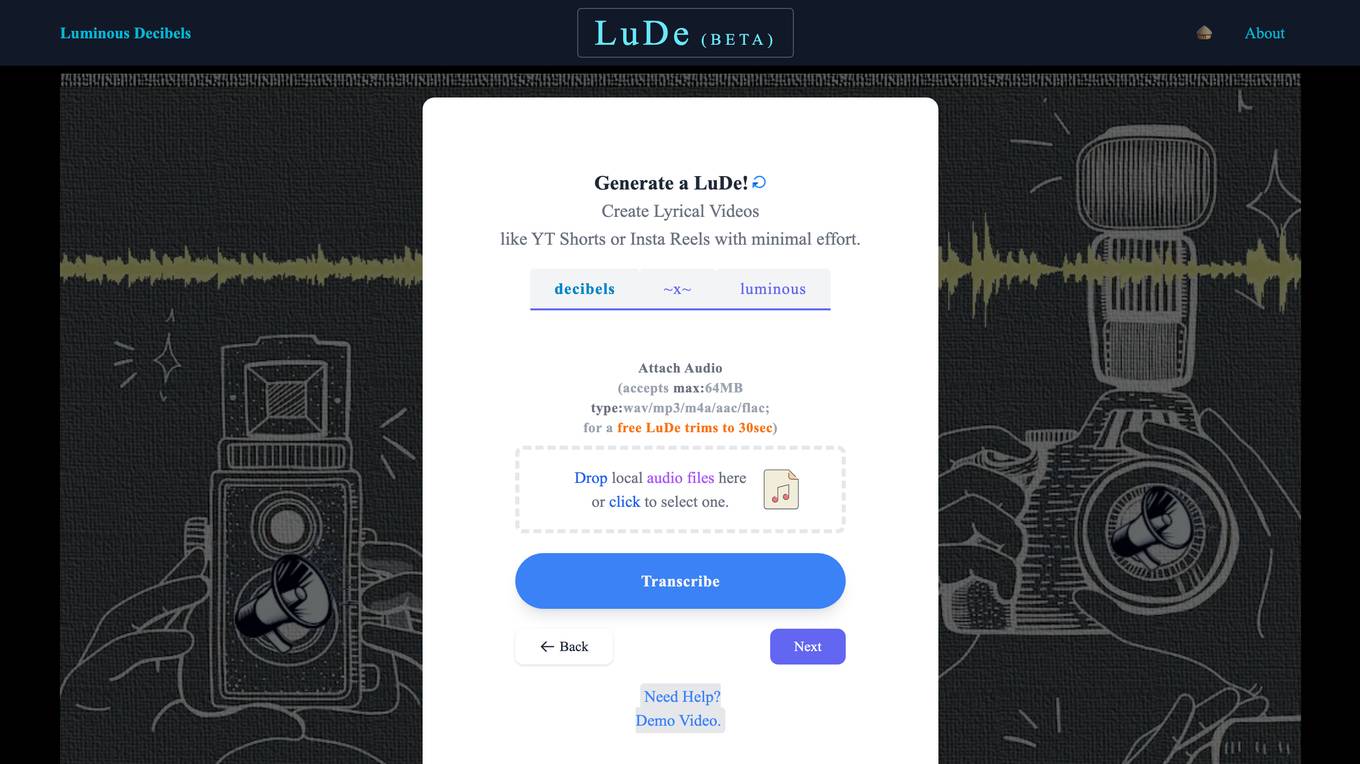
LuDe
LuDe is an AI-powered video creator application that allows users to generate lyrical videos like YouTube Shorts or Instagram Reels with minimal effort. Users can attach audio files in various formats and transcribe scripts to customize their videos. The application offers different video background options and requires users to 'Luminate' before the final video creation. LuDe leverages AI technology to create engaging video content based on the provided audio or text input.
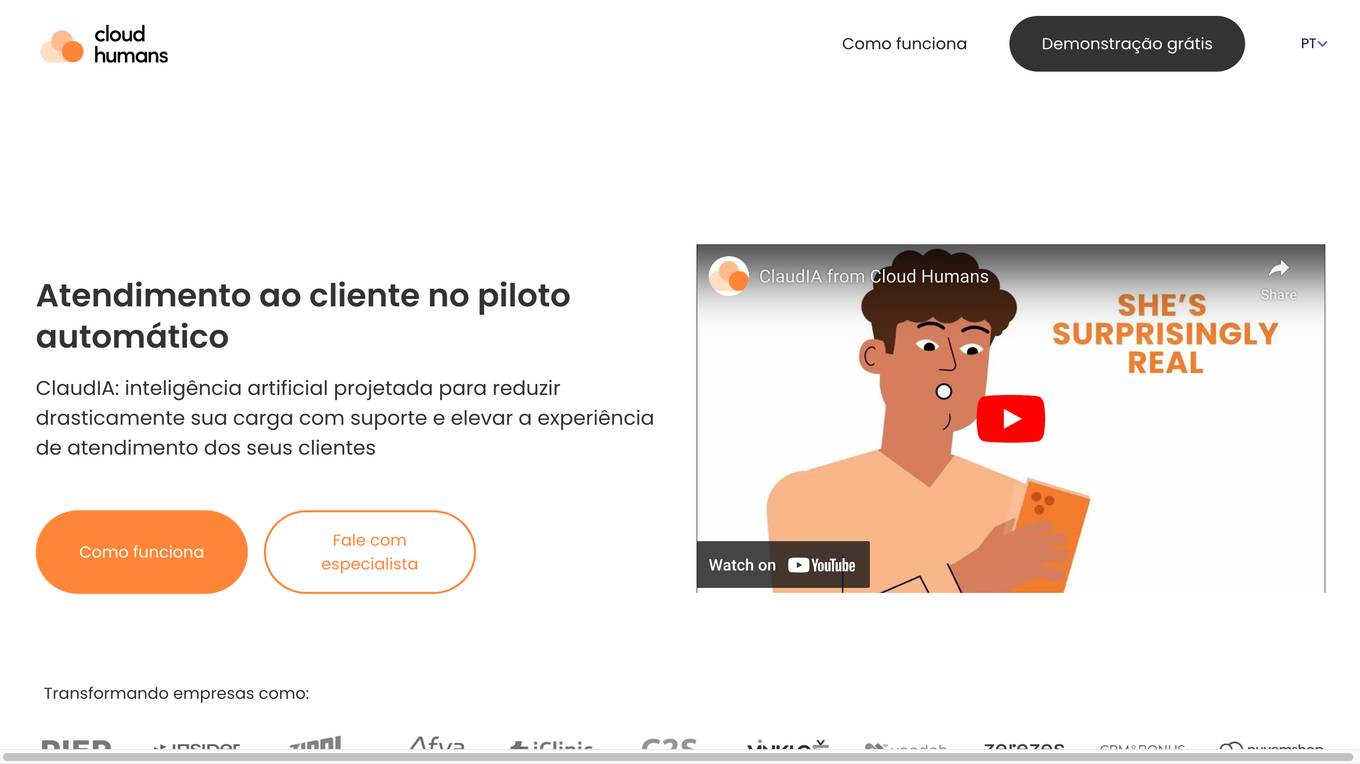
Cloudhumans
The website en.cloudhumans.com is experiencing a DNS issue where the IP address is prohibited, causing a conflict within Cloudflare's system. Users encountering this error are advised to refer to the provided link for troubleshooting details. The site is hosted on the Cloudflare network, and the owner is instructed to log in and change the DNS A records to resolve the issue. Additionally, the page provides information about Cloudflare Ray ID and user's IP address, along with performance and security features by Cloudflare.
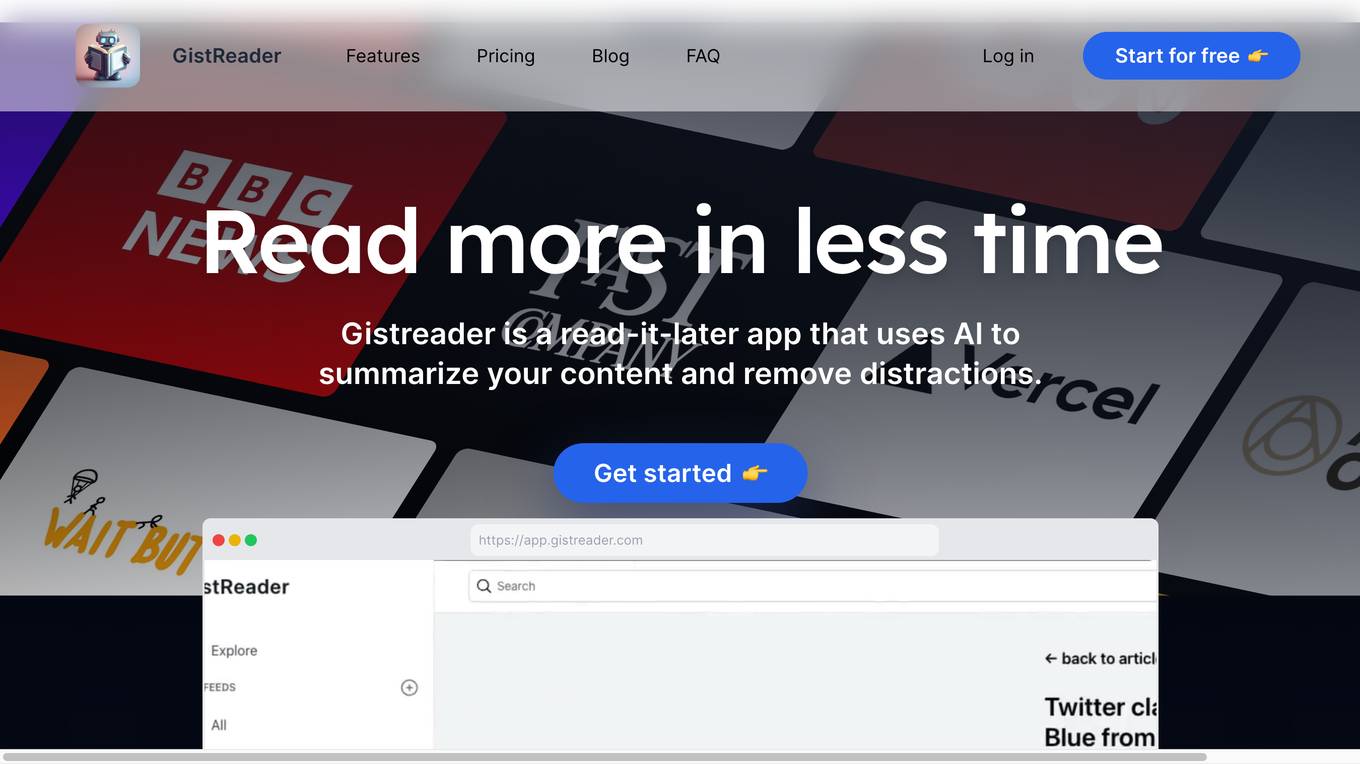
GistReader
GistReader is an AI-enhanced web reader that helps users save time by summarizing content and removing distractions. It transforms articles into clean, readable formats by utilizing AI technology. The application supports single page articles, RSS feeds, and offers AI summaries to extract the essence of articles quickly. GistReader works across all devices, syncs preferences, and offers various features like keyboard shortcuts, Pocket integration, YouTube support, and dark mode.
1 - Open Source AI Tools
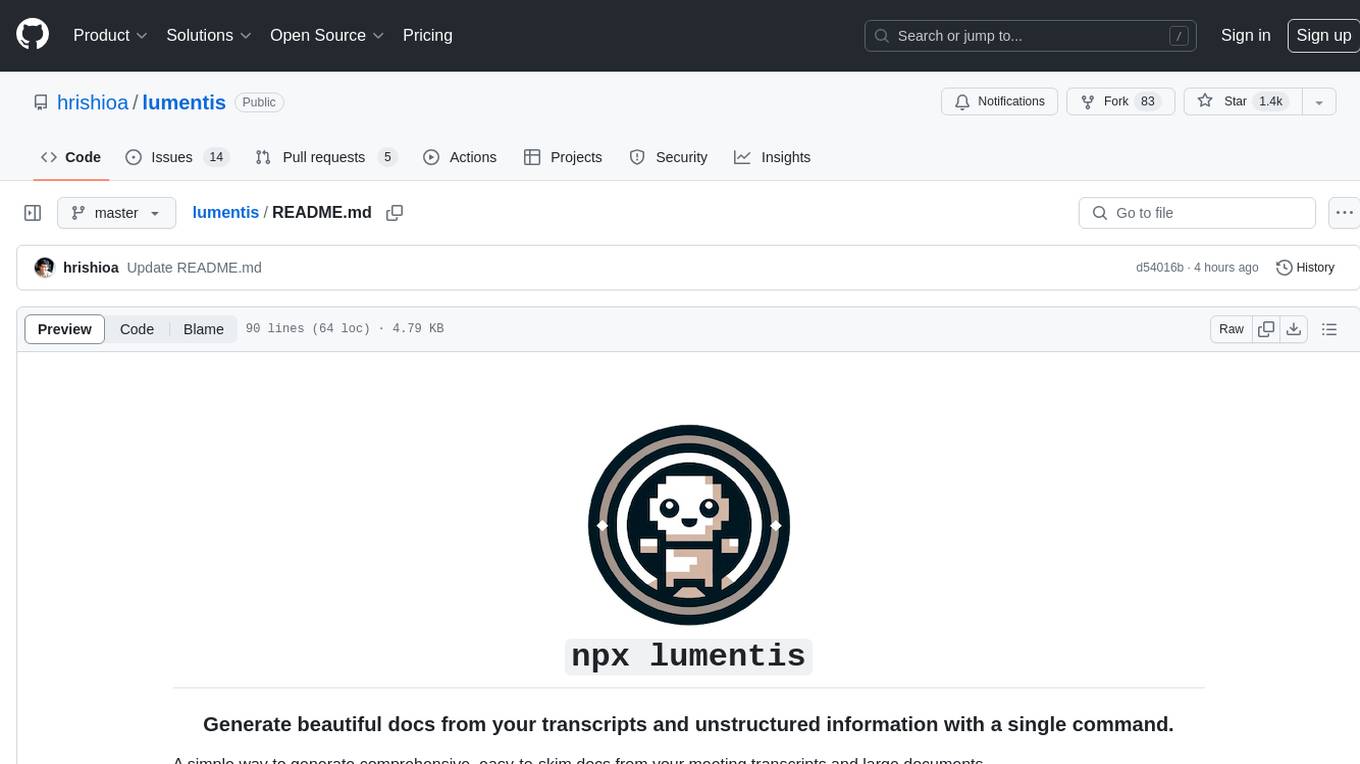
lumentis
Lumentis is a tool that allows users to generate beautiful and comprehensive documentation from meeting transcripts and large documents with a single command. It reads transcripts, asks questions to understand themes and audience, generates an outline, and creates detailed pages with visual variety and styles. Users can switch models for different tasks, control the process, and deploy the generated docs to Vercel. The tool is designed to be open, clean, fast, and easy to use, with upcoming features including folders, PDFs, auto-transcription, website scraping, scientific papers handling, summarization, and continuous updates.
20 - OpenAI Gpts
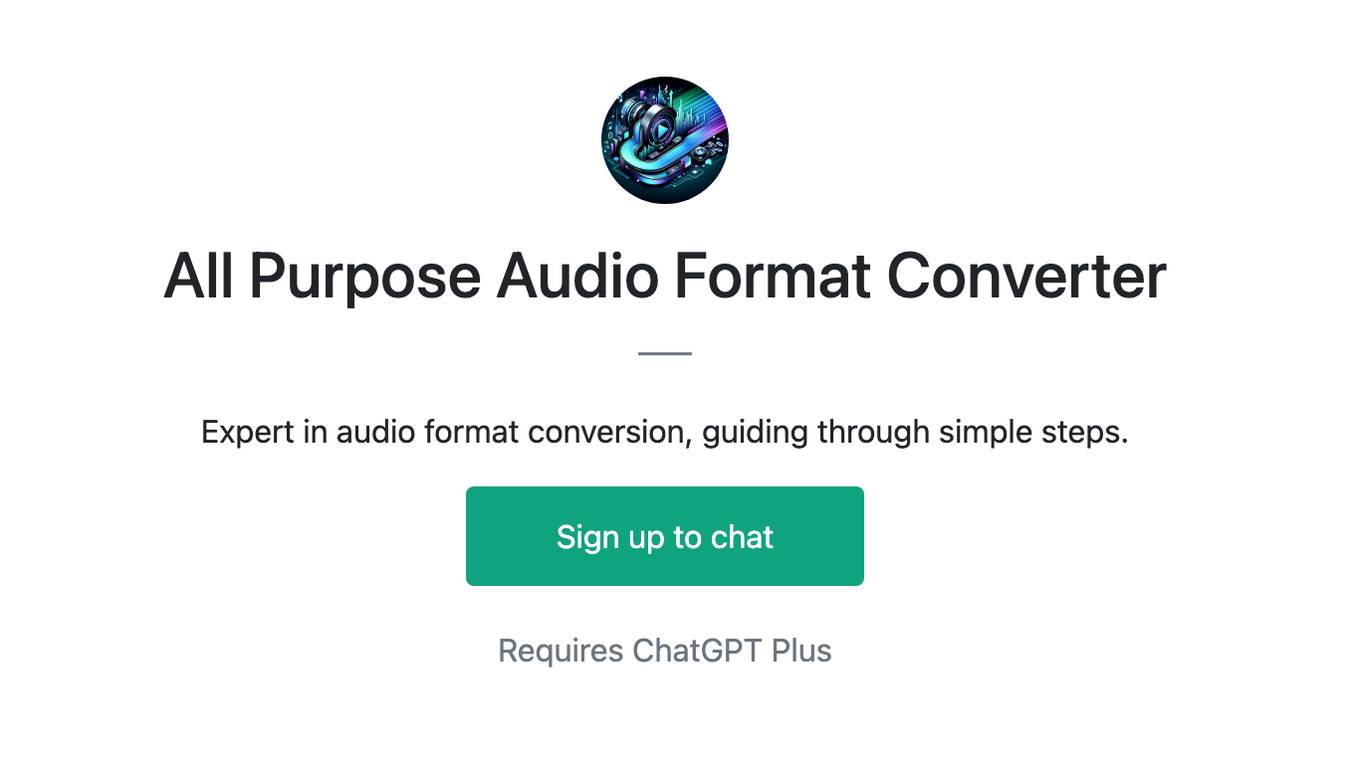
All Purpose Audio Format Converter
Expert in audio format conversion, guiding through simple steps.
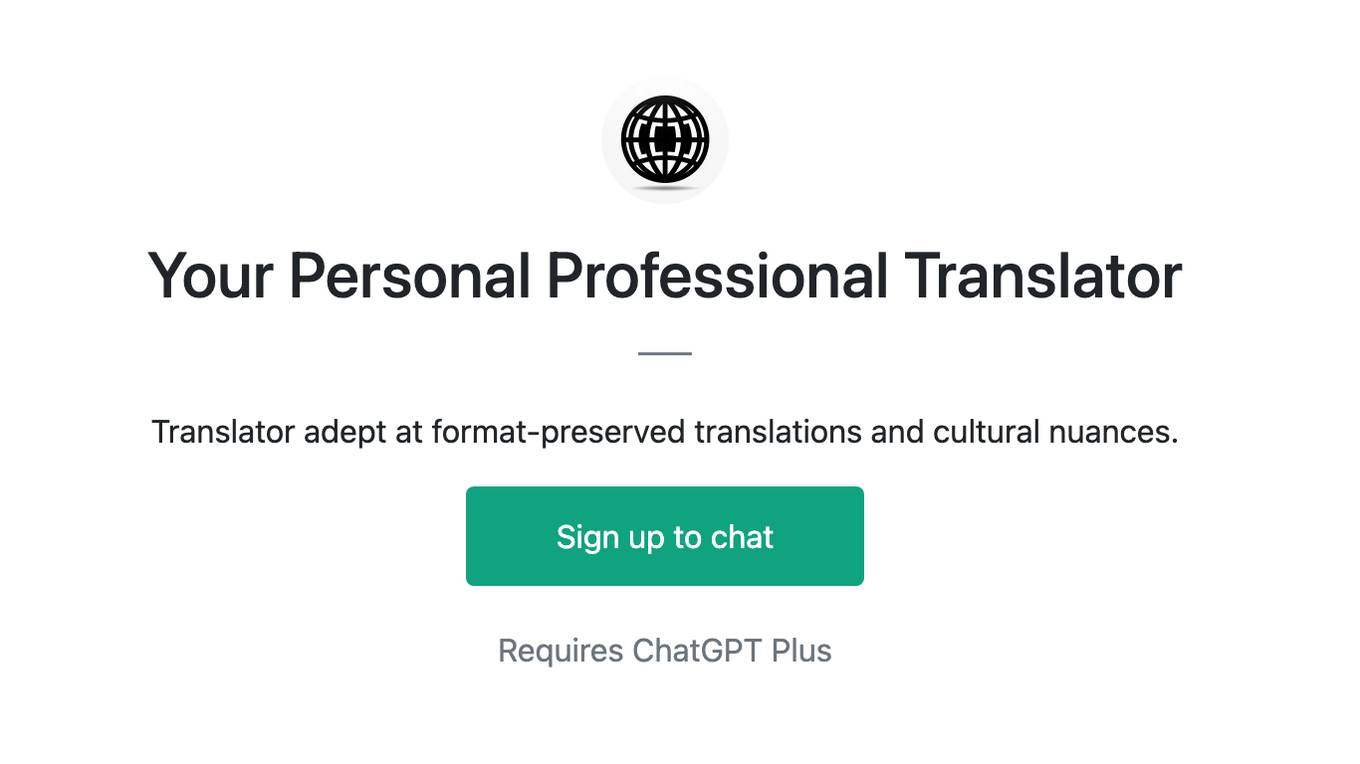
Your Personal Professional Translator
Translator adept at format-preserved translations and cultural nuances.
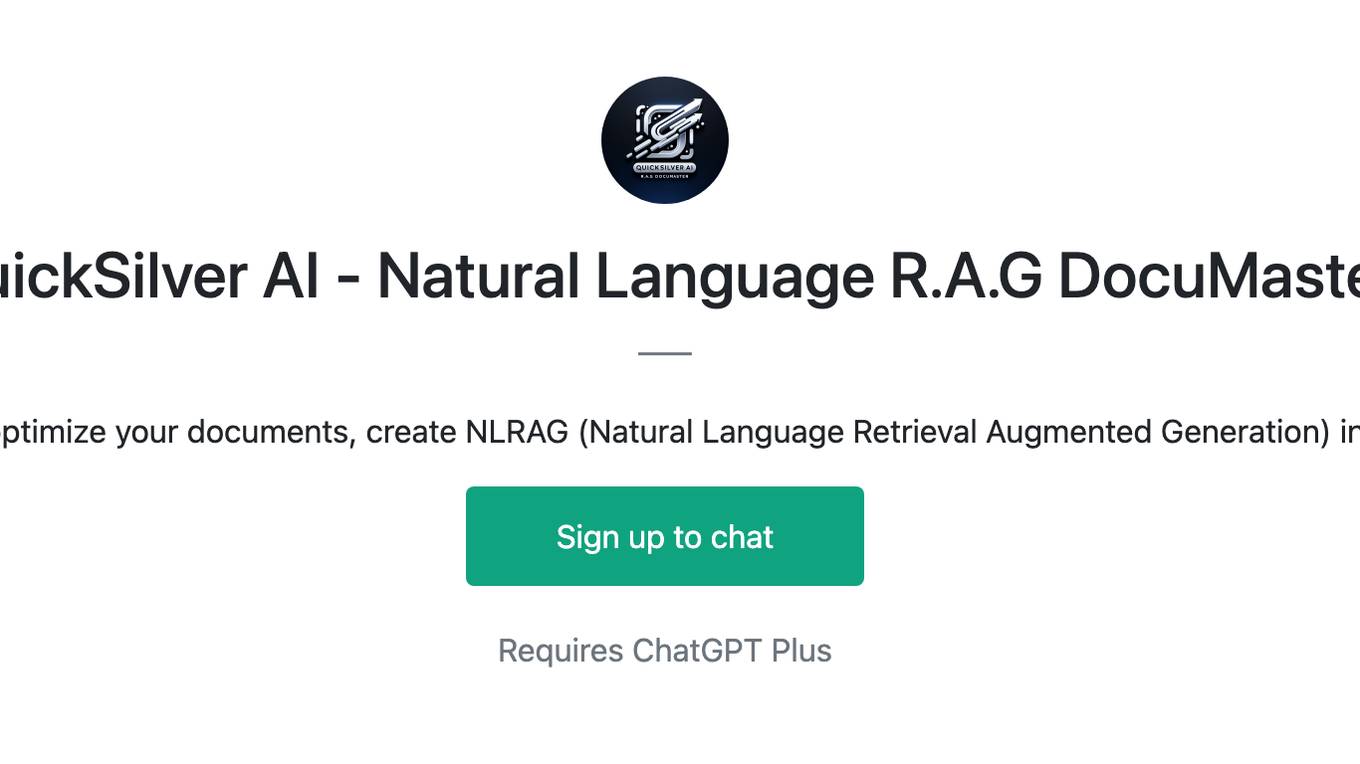
QuickSilver AI - Natural Language R.A.G DocuMaster
Easily format and optimize your documents, create NLRAG (Natural Language Retrieval Augmented Generation) indexes and more!
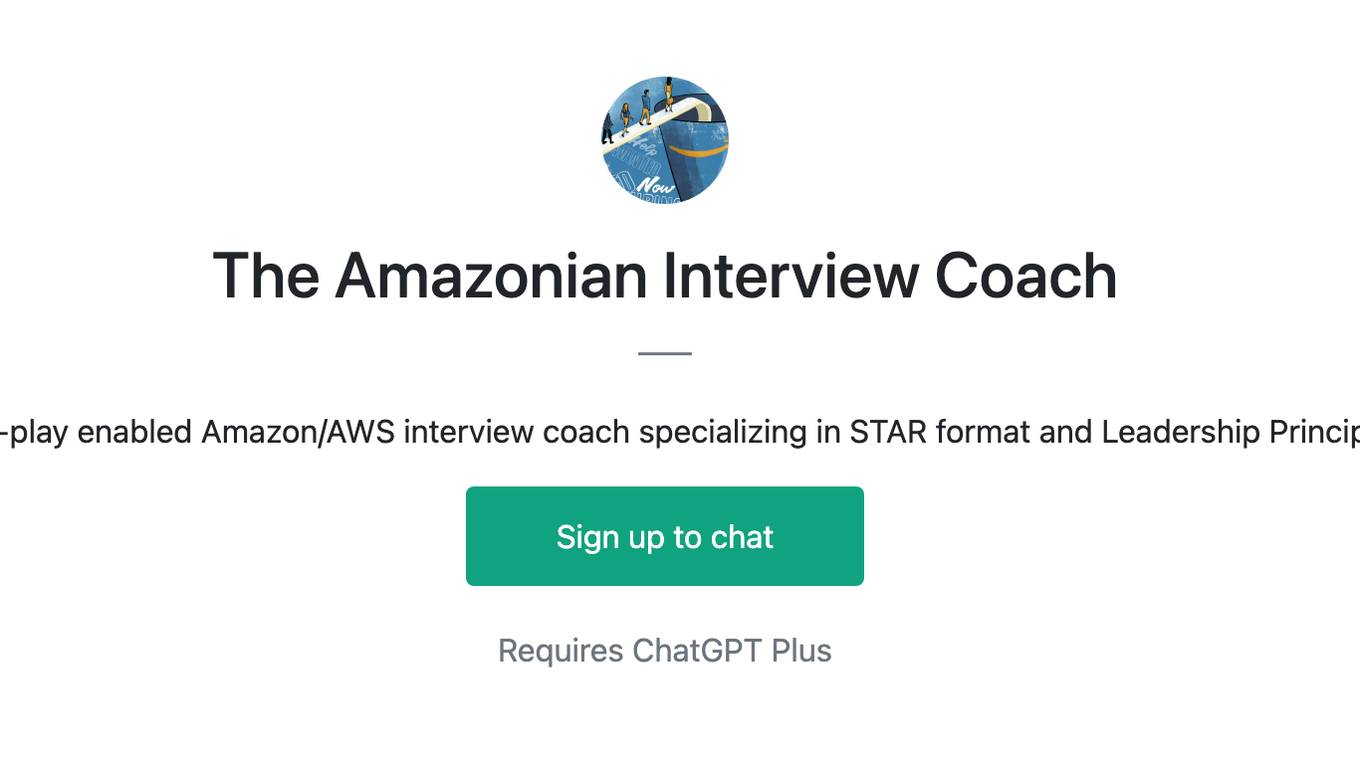
The Amazonian Interview Coach
A role-play enabled Amazon/AWS interview coach specializing in STAR format and Leadership Principles.
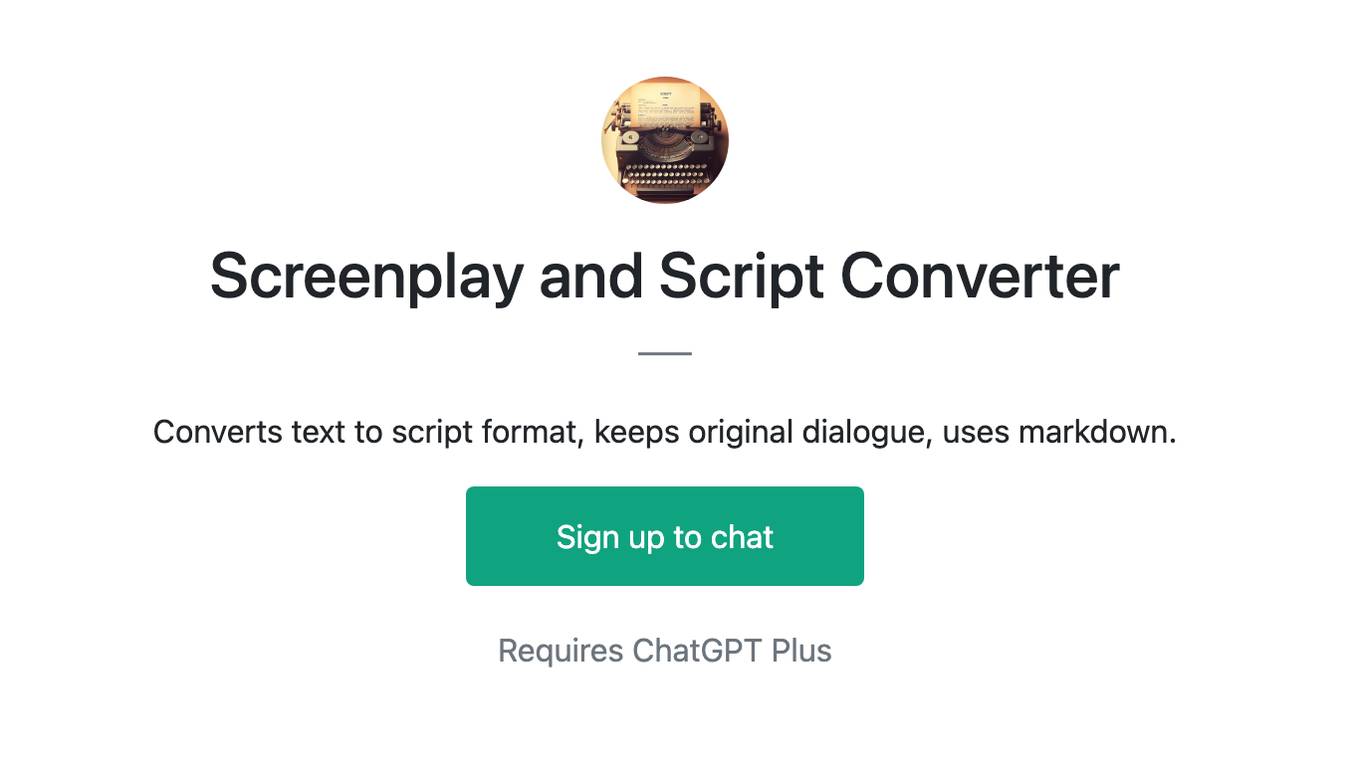
Screenplay and Script Converter
Converts text to script format, keeps original dialogue, uses markdown.
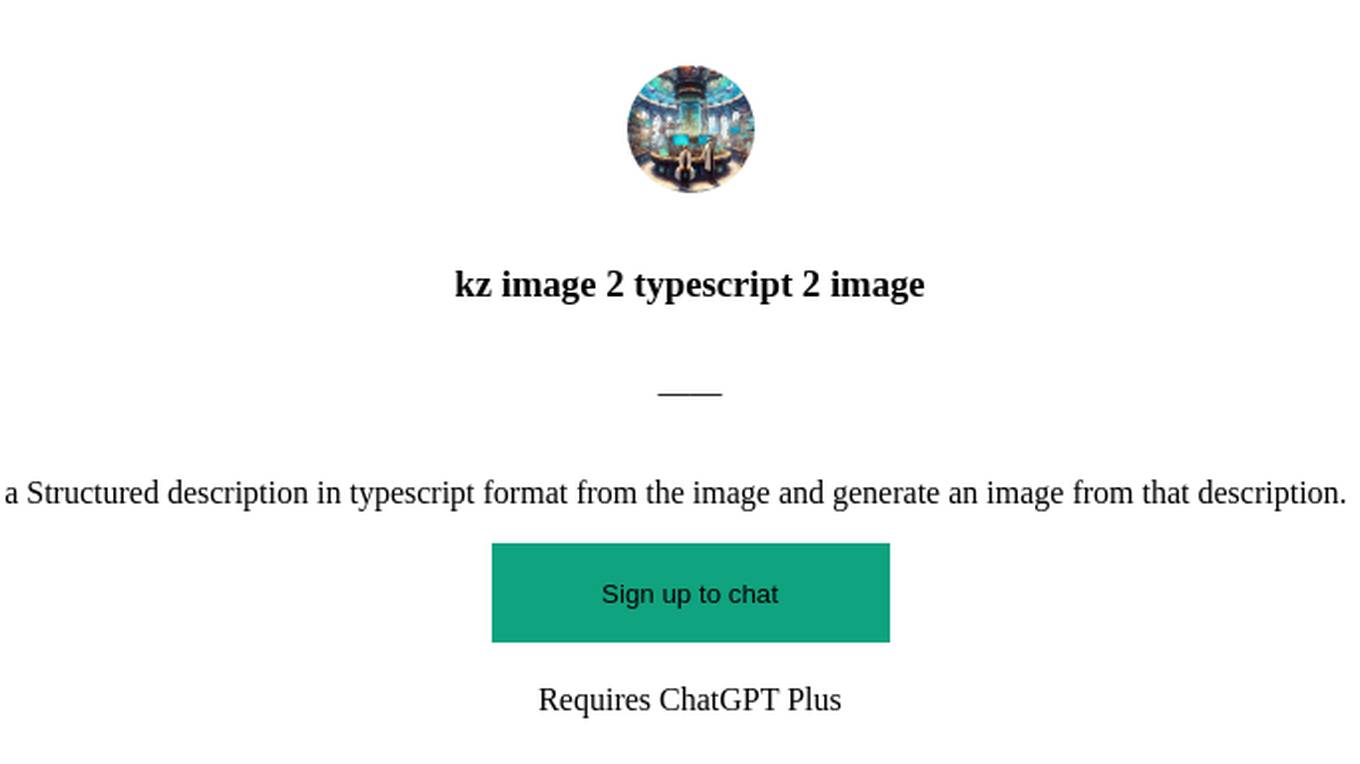
kz image 2 typescript 2 image
Generate a Structured description in typescript format from the image and generate an image from that description. and OCR
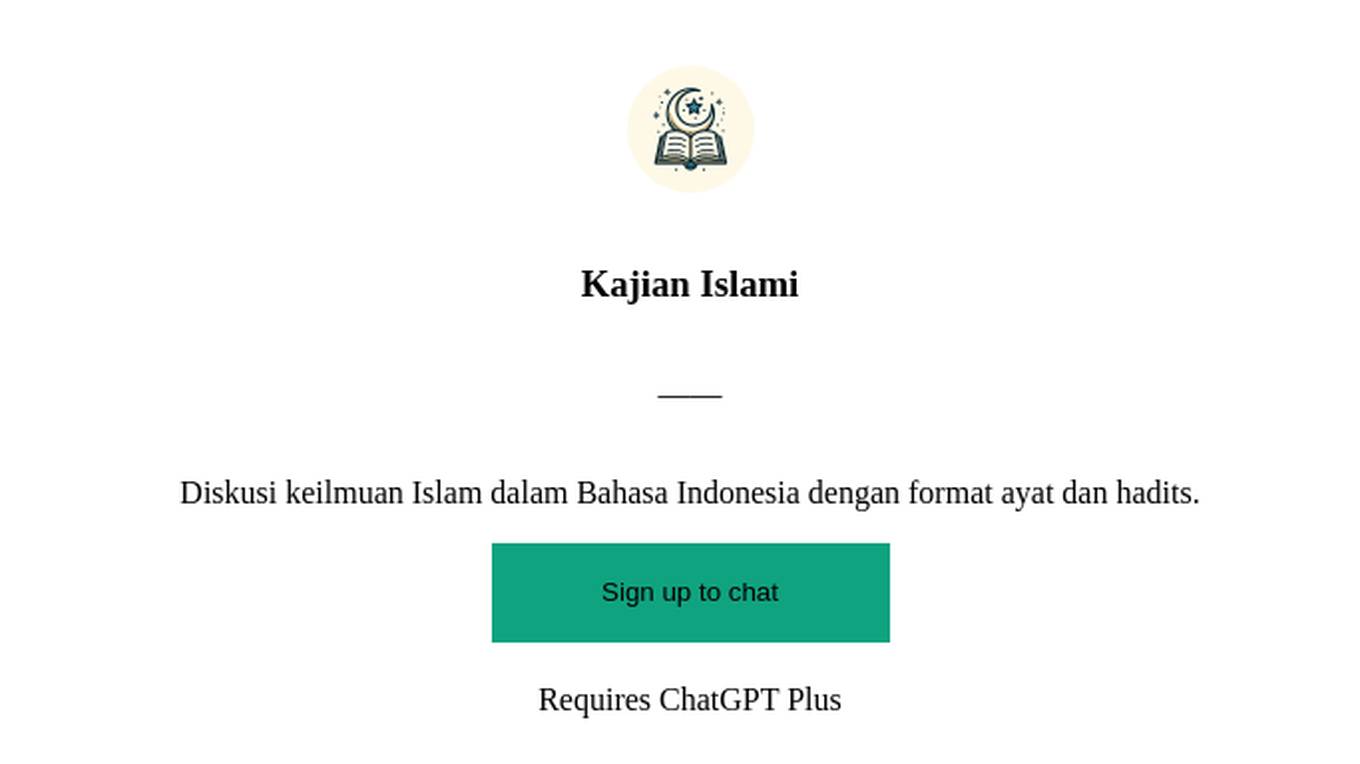
Kajian Islami
Diskusi keilmuan Islam dalam Bahasa Indonesia dengan format ayat dan hadits.

GLOBAL WAR INFO
Gathers and presents info on global wars in a table format with donation options.
